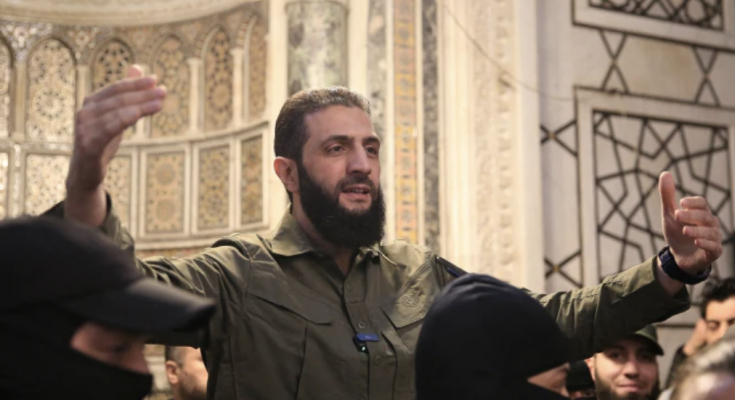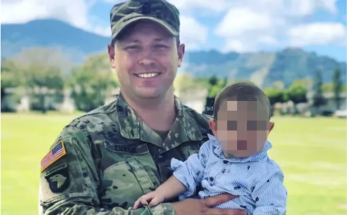What we’re covering
• The Assad family has lost control of Syria after more than 50 years of brutal dictatorship. In the face of an astonishingly swift rebel offensive, President Bashar al-Assad and his family fled to Moscow and were granted political asylum, an official source in Russia told CNN.
• The leader of the main rebel group, Abu Mohammad al-Jolani, called the toppling of Assad a “victory for the entire Islamic nation” in his first public remarks in Damascus. The rebels — led by Jolani’s HTS group, which was formed out of an Al Qaeda affiliate — have said minorities will be protected.
• US President Joe Biden welcomed the fall of the Assad regime. He described it as a “historic opportunity for the long-suffering people of Syria to build a better future,” but cautioned it was also a moment of risk and uncertainty in the region.
• As the White House focuses on next steps in Syria, US Central Command said the US military struck more than 75 ISIS targets in the country to prevent the terrorist group from taking advantage of the situation there.
Crowds gather in Syria’s second city Aleppo following regime’s collapse
Dozens of people gathered in Syria’s second city following the collapse of former President Bashar al-Assad’s regime on Sunday, according to satellite images shared with CNN.
The images, captured Sunday by Maxar Technologies, show the scale of large, anti-Assad demonstrations reported across the city of Aleppo, which rebel forces entered last week following a lightning advance.
Crowds can be seen at Aleppo’s central Saadallah al-Jabiri Square and at the gates of the ancient citadel, where apparent demonstrators appear steps away from a site visited on Wednesday by rebel leader Abu Mohammed al-Jolani.
Once Syria’s largest city by population and its economic capital, Aleppo is one of the oldest inhabited cities in the world. It was also the main rebel stronghold until Assad took it over in 2016.
Iranian envoy warns developments in Middle East will be beyond “American control”
The fallout from the collapse of Bashar al-Assad’s regime will be beyond American control and could lead to a conflict involving regional countries and Turkey, the Iranian ambassador to Syria warned on Sunday.
“I believe the developments in the region will be beyond American control and could seriously disrupt their strategic objectives,” Hossein Akbari said in comments reported by Iranian state news agency IRNA Sunday.
Akbari said the fall of the Assad government – which Iran had supported – had “created a complex alignment between northern and southern forces (in Syria), which could lead to conflict among certain Islamic and Arab countries with Turkey.”
Some context: The rebel coalition led by the former Al Qaeda affiliate Hayat Tahrir al-Sham (HTS) that has taken control of Damascus is only one of numerous armed groups operating in Syria. Other groups controlling territory in the country include the Turkey-backed Syrian National Army and the Kurdish-led Syrian Democratic Forces, elements of which Turkey views as a terrorist organization.
“Given the current circumstances, the diversity of perspectives, and the numerous interventions by various countries, there is a risk of losing security within this (Syrian) society,” Akbari said.
Also on Sunday, Iranian Foreign Minister Abbas Araghchi claimed in a televised interview that Iran’s intelligence and security agencies had been “fully aware” of the rebels’ movements during their lightning advance and had conveyed “all relevant information” to “the Syrian government and the Syrian Army.”
“What was surprising was the inability of the Syrian Army to counter this move and the speed of the developments,” he said.
Analysis: Syrian rebel leader’s victory speech held a message for Iran, Trump and Israel
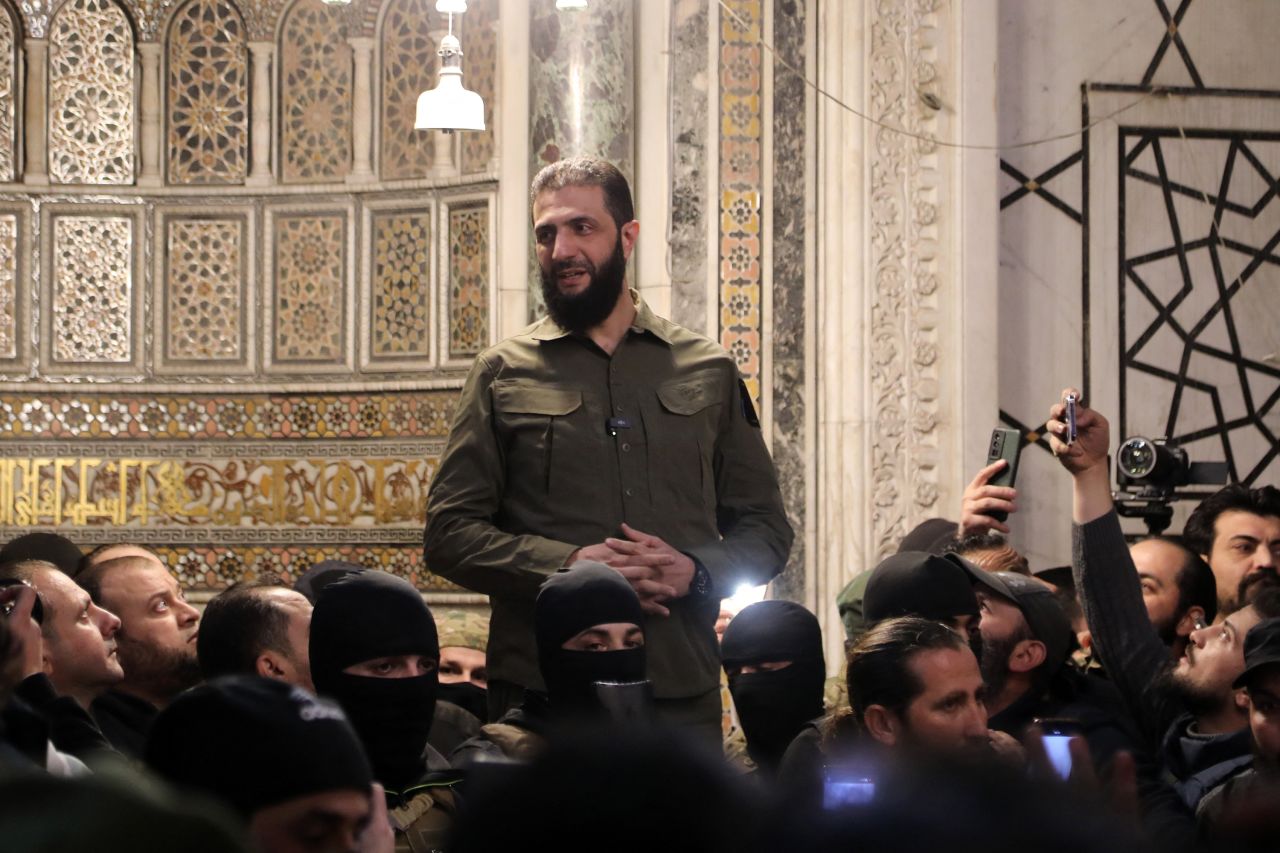
In his long journey from young al Qaeda fighter two decades ago, to rebel commander espousing sectarian tolerance, Abu Mohammad al-Jolani has had plenty of time to plan to fine-tune his narrative.
It is no surprise that the Islamist rebel chose Damascus’s venerated Umayyad Mosque – not a TV studio, nor newly absented presidential palace, but a place of towering religious significance, which at 1,300 years old is one of the world’s most ancient mosques – to deliver that message.
It was a message to all those who had taken him to power, and propelled his Hayat Tahrir al-Sham (HTS) fighters at startling speed across Syria to oust President Bashar al-Assad.
To the newly liberated Syrians: “This victory, my brothers, has come through the suffering of those who endured imprisonment,” he said. In a country where the God you chose, and how you pray, can define your class, limit your aspirations and pit you against your neighbor, Jolani sent a very clear signal in the Umayyad Mosque. He is a Sunni Muslim, part of Syria’s majority. Assad was an Alawite. There are Christians, Druze, Shia Muslims, Ismailis and more.
Yet the words he chose appeared intended to break those old bounds. “This new triumph, my brothers, marks a new chapter in the history of the region, a history fraught with dangers (that left) Syria as a playground for Iranian ambitions, spreading sectarianism, stirring corruption,” he said.
To Iran: He sent an apparent message to Tehran’s theocracy — that their meddling is over, their easy land access to their mega proxy Hezbollah in Lebanon is over, their support for Syrian Hezbollah is over, and gone too is the home they once had for Iran’s weapons stockpiles.
To US and Israel: This is a message Jolani will know is being heard in Tel Aviv and Washington, where he is considered to be a member of a proscribed terrorist organization with a $10 million bounty on his head. “Your interests are understood in the new Syria,” he said. An understanding on his part that these are the powers capable of bringing him down.
Jolani’s message was also tuned for regional powers he’ll need to keep onside, promising to clean shop. “Syria is being purified,” he said, referring to the country’s regional reputation as a narco-state, saying Assad’s Syria had “become the world’s leading source of Captagon,” an amphetamine-type drug, and criminality through the region.
US “strongly supports” a peaceful transition of power in Syria, top US diplomat says
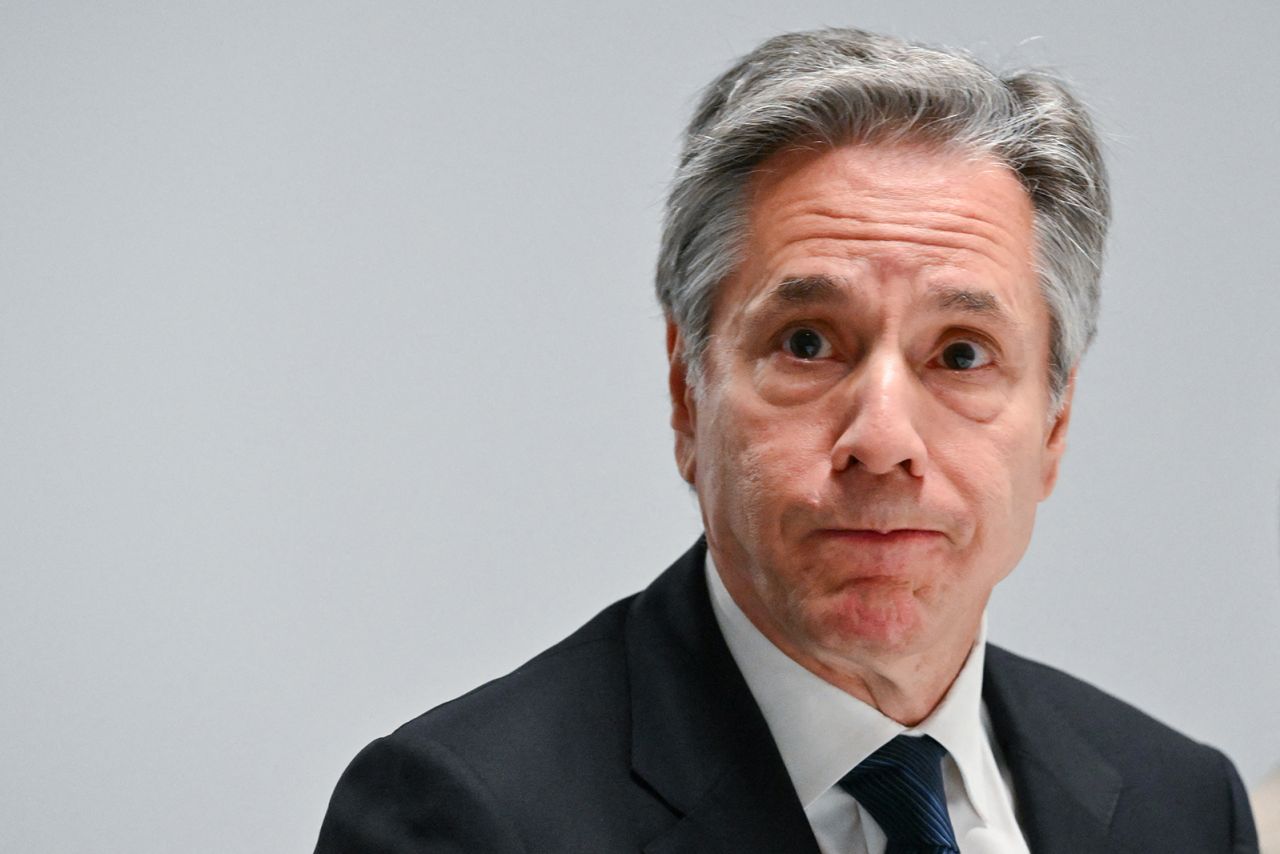
The US strongly supports a peaceful transition of power to an accountable Syrian government following the rebel forces’ takeover, US Secretary of State Antony Blinken said on Sunday.
“During this transitional period, the Syrian people have every right to demand the preservation of state institutions, the resumption of key services, and the protection of vulnerable communities,” Blinken said in a statement.
The US has taken note of statements of made by leaders of the rebel coalition Hayat Tahrir Al-Sham (HTS), Blinken added, saying that the US calls on all actors to respect human rights, take all precautions to protect civilians and to uphold international humanitarian law.
“As they take on greater responsibility, we will assess not just their words, but their action,” he said.
What’s happening in Syria is a “seismic moment,” former correspondent says
Former CNN correspondent Arwa Damon, who extensively covered the Syrian refugee crisis, says that what is happening now is “a seismic moment.”
Damon, the founder of the nonprofit organization Inara, noted the “euphoria” for scores of families that can now reunite after displacement or imprisonment, although the sense of optimism is countered with an equal measure of apprehension because this moment came at a great personal cost.
She told Blitzer about “the visceral fear” of the regime. “The way that this family governed the country by crushing its own population is not something to be underestimated.”
As for the challenges ahead, Damon said while much remains to be seen, the hope is that it is finally the time when the people of the region are given the agency to decide their future “without any of these outside meddling forces.”
US and Turkish defense chiefs spoke on Sunday to discuss developments in Syria, Pentagon says
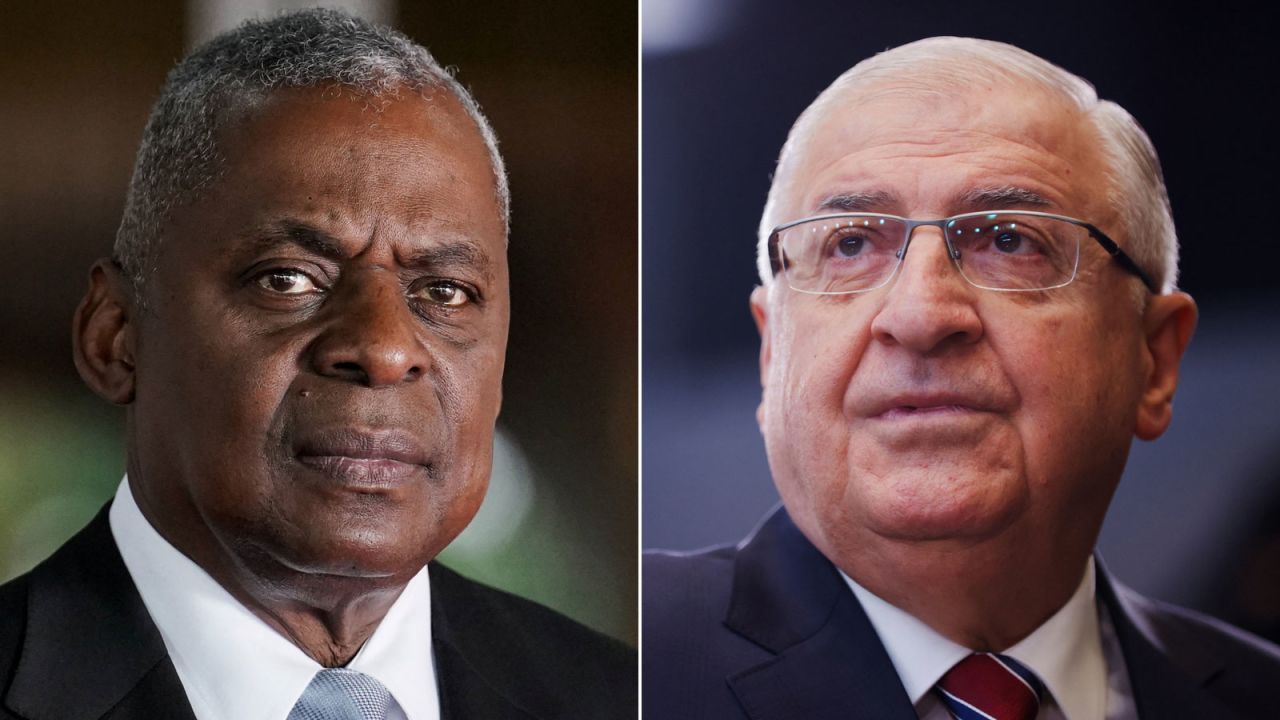
US Secretary of Defense Lloyd Austin on Sunday spoke with Turkish National Defense Minister Yasar Guler to discuss the developments in Syria, according to a statement from the Pentagon.
“Secretary Austin emphasized that the United States is watching closely the statements and actions of the various opposition groups in Syria. Both he and Minister Guler agreed that these groups must take steps to protect civilians, including ethnic and religious minorities, and abide by international humanitarian norms,” the statement said.
Austin and Guler also stressed the importance of preventing further escalation, avoiding risk to US forces and partners, as well as the Defeat-ISIS.
FBI renews offer of up to $1 million for information that could lead to Austin Tice’s return from Syria
The FBI said on Sunday it is still offering a reward of up to $1 million for information that can lead to American journalist Austin Tice’s safe return following the collapse of Bashar al-Assad’s regime in Syria.
President Joe Biden referenced Tice during remarks Sunday about the fall of the Assad regime.
“We are mindful that there are Americans in Syria, including those who reside there. As well as Austin Tice, who was taken captive more than 12 years ago. We remain committed to returning him to his family,” he said.
Russia grants Assad and family asylum as rebel group claims victory in Syria. Here’s the latest
As many in Syria celebrated the end of the long rule of Bashar al-Assad, rumors swirled about his whereabouts. After a day of intrigue, the mystery was solved when Russian state media announced he had landed in Moscow.
“Assad and his family have arrived in Moscow. Russia, for humanitarian reasons, has granted them asylum,” a Kremlin source said, according to TASS.
Since the uprising began, and the rebels rapidly advanced through the country, Assad had kept a low profile.
After meeting with Iran’s foreign minister last weekend, he pledged to fight “terrorist organizations” but has otherwise made little comment as the rebels captured major cities.
On Saturday, as the rebels encircled Damascus, a source told CNN that Assad was nowhere to be found in the city.
Syria’s presidential office initially denied that Assad had left Damascus or travelled to another country, saying that some foreign media outlets were “spreading rumors and false news.”
After the rebels took the capital, they said he had fled and were searching for him. Some of the fighters along with civilians began ransacking his official residences.
Amid the rumors, Russia’s foreign ministry issued a statement Sunday saying Assad had “decided to leave the presidential post and left the country, giving instructions to transfer power peacefully.”
Here’s what else you need to know:
- Rebel leader’s remarks in Damascus: The leader of the main group behind Syria’s armed opposition, Abu Mohammad al-Jolani, called the toppling of Assad a “victory for the entire Islamic nation” in his first public remarks since the rebels captured Damascus.
- Biden response: US President Joe Biden said that the fall of the Assad regime is an act of justice that is allowing Syrians a “historic opportunity. It’s a moment of historic opportunity for the long-suffering people of Syria to build a better future for their proud country,” Biden said in remarks from the White House on Sunday. “It’s also a moment of risk and uncertainty as we all turn to the question of what comes next.”
- Centcom action in Syria: A US official said that “CENTCOM, together with allies and partners in the region, will continue to carry out operations to degrade ISIS operational capabilities even during this dynamic period in central Syria.” In all, the US struck over 75 ISIS targets on Sunday, US Central Command said in a statement. The White House said it has also “been concentrated” over the last week on the issue of any remaining chemical weapons in the country and said the administration is taking “prudent measures” in regard to them.
- Israel: The Israeli military’s Arabic spokesperson has issued an “urgent warning” to residents in southern Syria on Sunday. In a post on X, Avichay Adraee issued warnings for five areas. This comes as Israeli Prime Minister Benjamin Netanyahu ordered the country’s military to seize the buffer zone on Israel’s border with Syria.
US focused on engaging groups and countries in region and monitoring status of chemical weapons, official says
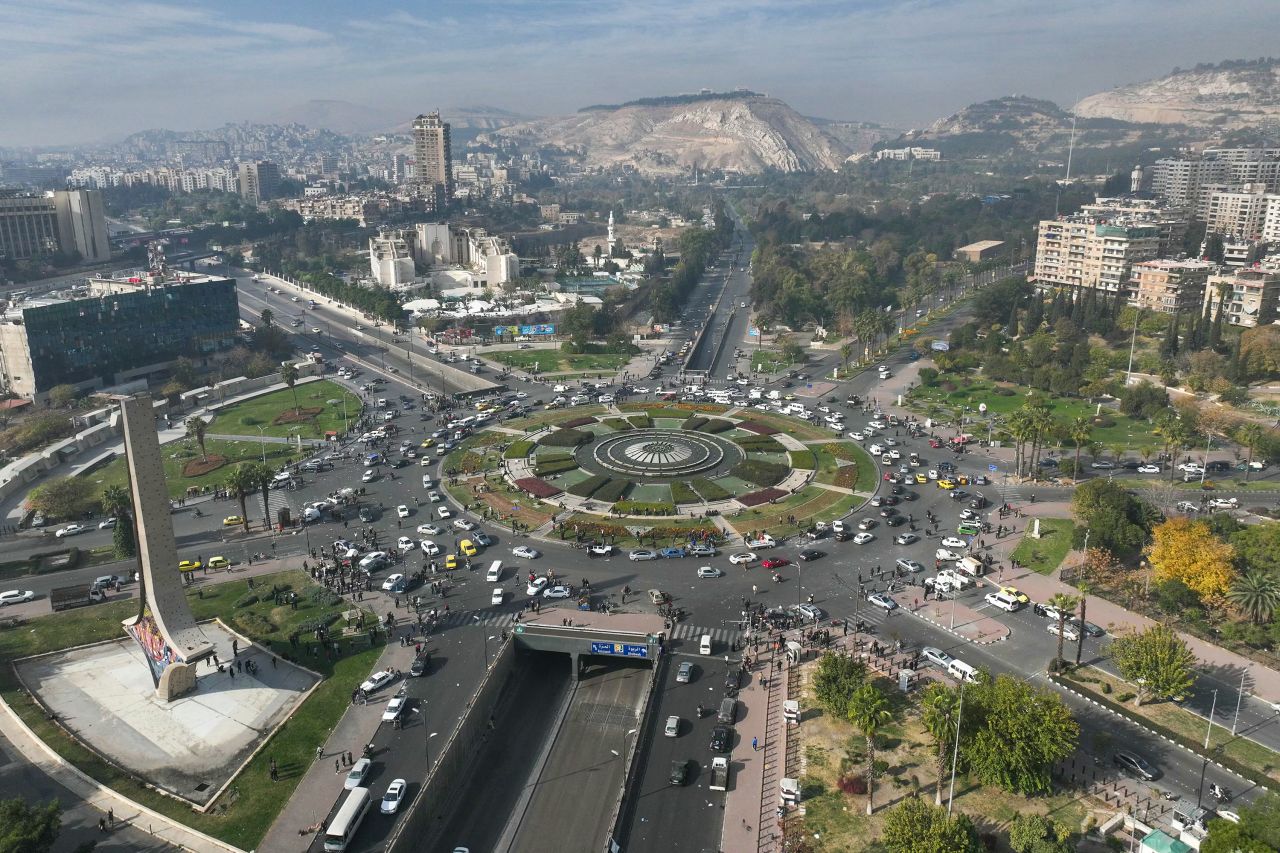
The White House is focusing on next steps in Syria, including engaging with groups in the country, speaking to regional leaders and maintaining the efforts against ISIS.
A senior administration official said the US will be “engaging with the broad spectrum of Syrian society, opposition groups, groups on the ground in Syria exile groups. We have broad contacts, and we built up over the course of over the past decade and even beyond.”
The engagement is set “to establish and help wherever we can a transition away from the Assad regime towards an independent, sovereign Syria that can serve the interests of all Syrians under the rule of law.”
HTS, a coalition that was a major coalition of the toppling of regime, was designated by the US as a foreign terrorist group in 2018. The official said the US has been “watching very closely” and is seeing if the statements made by rebel leaders “are translated into actions on the ground.”
Abu Mohammad al-Jolani, who heads HTS, declared victory for the “entire Islamic nation” on Sunday, in his first public remarks since the rebel-led coup, which he said “marks a new chapter in the history of the region.”
He said the armed opposition ultimately plans to form a government defined by institutions and a “council chosen by the people.”
The White House said it has also “been concentrated” over the last week on the issue of any remaining chemical weapons in the country and said the administration is taking “prudent measures” in regard to them.
The senior official said it is “a top tier priority for ours, and making sure that anything with those types of derivatives, which is everything from chlorine to, you know, to far worse,” is “destroyed or cared for.”
Russia requests private UN Security Council meeting on Syria
Russia has asked the United Nations Security Council to meet privately Monday to discuss the collapse of the Assad regime in Syria.
He said the meeting was needed to discuss what was happening with the United Nations Disengagement Observer Force, which is in charge of maintaining a ceasefire between Israel and Syria and supervising a buffer zone that separates the Israeli-occupied Golan Heights from the rest of Syria.
Israeli Prime Minister Benjamin Netanyahu on Sunday said that he had ordered the military to “take control” of the buffer zone.
On the road to Damascus, a sense of stunned disbelief
A day earlier, the border between Syria and Lebanon would have been humming with guards, soldiers and agents from Syria’s much-feared intelligence services, the mukhabarat.
It was empty this evening of officials. A group of young men stood outside the duty-free store, giggling and absorbing the moment. An abandoned tank below a torn poster of Bashar al-Assad marked the only immediate signs of any struggle to take the Syrian capital.
The road into Damascus was dark and quiet. A ceasefire has been put into effect by the rebels, who declared a curfew to last from 4 p.m. to 5 a.m. local time. It appeared that most were observing it. Tracer fire could be seen over the city and bursts of celebratory gunfire rang out. There was no sign of checkpoints on the streets but in the center of Damascus two armed men from Idlib patrolled the area, stopping to pose with an old man for a photo.
Another group of rebels drove past to ask a group of residents what they were doing on the streets. They spoke softly and politely, in keeping with the strict edict that has been given by their leader, Abu Mohammad al-Jolani, that rebel forces maintain law and order and reassure a startled Syrian population, particularly its minorities, that they do not seek retribution or revenge.
A new chapter? There is still a sense of stunned disbelief that, after 53 years of life under Assad rule – the ousted leader’s father Hafez al-Assad took power in 1971 – Syria is beginning a new chapter. Many never dared to believe this moment would ever come.
While the curfew in Damascus lent a muted air to the city, on the Lebanese side of the border there were scenes of jubilation as Syrians gathered to celebrate Assad’s ouster, setting off fireworks and handing out sweets, waving the flag of the Syrian uprising.
“This means there is finally freedom,” one many shouted, “Allahu Akbar!” (God is the greatest).
Watch the video below as CNN drives through the empty border post and into Damascus.
Syrian rebels guaranteed security of Russian military bases in country, Russian state media says
Syrian rebel leaders have guaranteed the security of Russian military bases and diplomatic institutions in Syria, Russian state media claimed on Sunday night, citing a Kremlin source.
The source added that Russia hopes for “the continuation of political dialogue in the interests of the Syrian people and the development of bilateral relations between Russia and Syria.”
Earlier on Sunday, TASS reported that supporters of the Syrian armed opposition took control of the western city of Jableh, Syria, near Russia’s Hmeymim airbase. Eyewitnesses told Russian state media that the situation around Hmeymim airbase was calm with no exchanges of fire with the rebels.
Meanwhile, the Syrian government flag was removed from the building of the Syrian Embassy in Moscow, as well as the plaque showing the name of the diplomatic mission, a TASS correspondent reported on Sunday.
US forces used B-52 bombers and F-15s in attack on ISIS camps in Syria on Sunday, official says
A US official has provided some more information about the airstrikes US forces conducted in central Syria on Sunday, which targeted “ISIS leaders, operatives and camps” using multiple Air Force assets — including B-52 bombers, F-15 fighter jets and A-10 aircraft — the official said.
The official also said that “CENTCOM, together with allies and partners in the region, will continue to carry out operations to degrade ISIS operational capabilities even during this dynamic period in central Syria.”
In all, the US struck over 75 ISIS targets on Sunday, US Central Command said in a statement.
“There should be no doubt – we will not allow ISIS to reconstitute and take advantage of the current situation in Syria. All organizations in Syria should know that we will hold them accountable if they partner with or support ISIS in any way,” CENTCOM commander Gen. Erik Kurilla said.
President Joe Biden also said on Sunday that the US intends to continue its anti-ISIS operations in the country.
The post was updated with information on the number of targets the US said it hit in Syria.
Biden reiterates commitment to bringing home journalist Austin Tice, who has been held in Syria since 2012
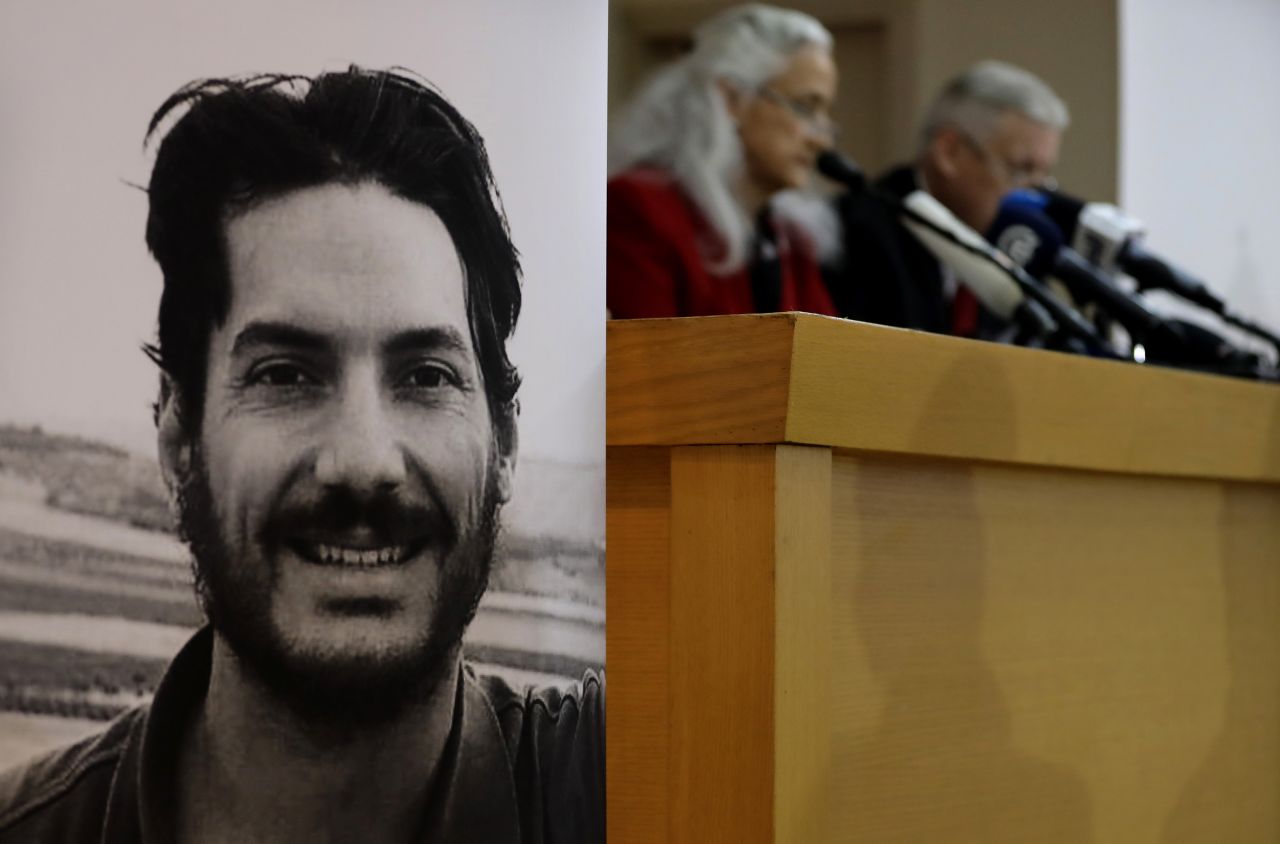
US President Joe Biden reiterated his commitment to bringing freelance journalist Austin Tice home following the fall of the Assad regime.
“We are mindful that there are Americans in Syria, including those who reside there. As well as Austin Tice, who was taken captive more than 12 years ago. We remain committed to returning him to his family,” Biden said during remarks Sunday about the downfall of the Assad regime.
Tice has been held in Syria since 2012.
In a statement to CNN, Tice’s parents Marc and Debra Tice said, “We are eagerly anticipating seeing Austin walk free. We are asking anyone who can do so to please assist Austin so he can safely return home to his family.”
CNN previously reported that US officials reached out to Syrian opposition forces on Thursday about Tice, hoping to learn more about his whereabouts.
US believes significant portions of rebel group HTS maintain strong links to ISIS, a senior official says
The US believes significant portions of Syria’s rebel coalition Hayat Tahrir Al-Sham (HTS) maintain strong links to ISIS, according to a senior US official.
The HTS has been designated as a Foreign Terrorist Organization by the US, Turkey, the United Nations and several other Western nations. In 2018, the United States placed a $10 million bounty on its military leader Abu Mohammad al-Jolani.
In an exclusive interview with CNN, Jolani pushed back against the enduring terror designation of HTS, calling the label “primarily political and, at the same time, inaccurate,” arguing that some extreme Islamist practices had “created a divide” between HTS and jihadist groups.
He claimed that he was opposed to some of the more brutal tactics used by other jihadi groups which led to his severing ties with them. He also claimed that he was never personally involved in attacks on civilians.
Biden says fall of Assad a “fundamental act of justice” for Syrian people
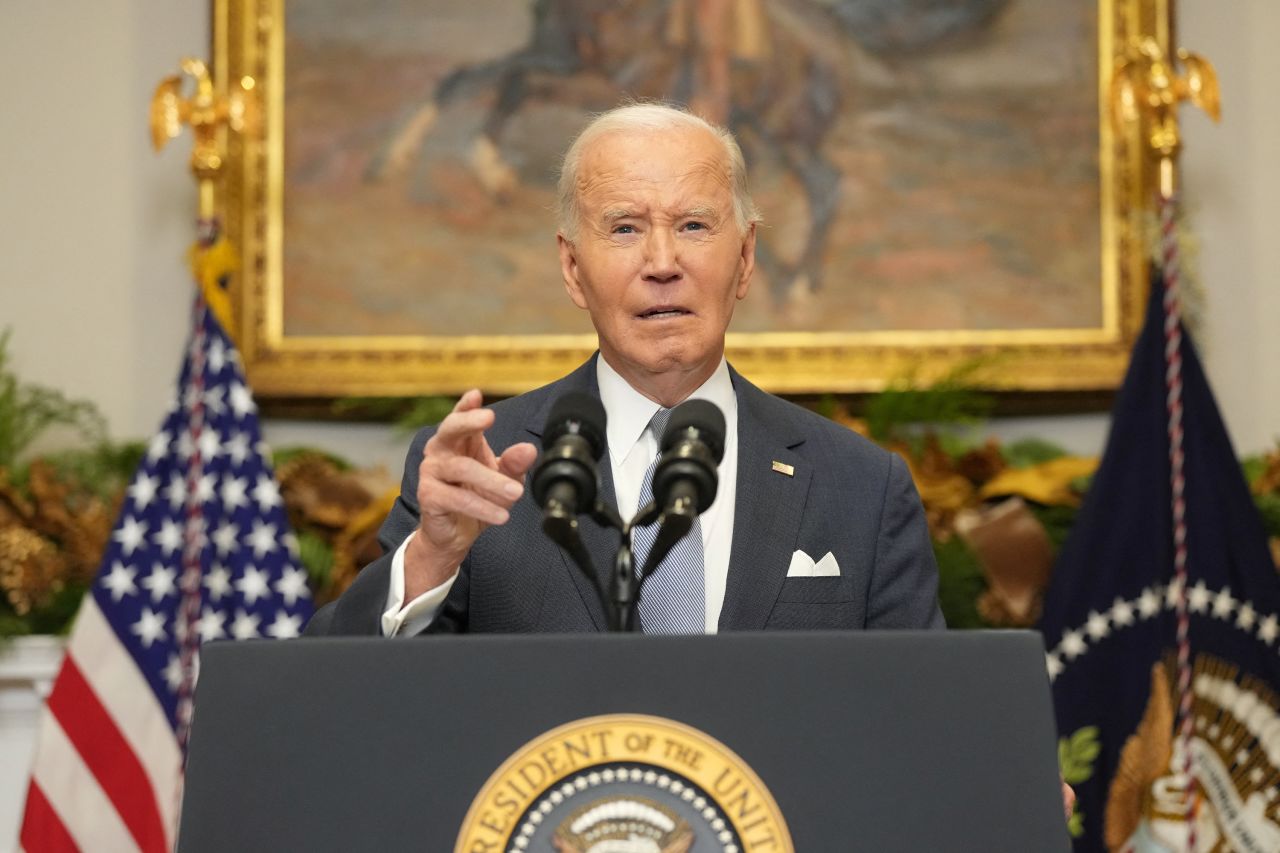
US President Joe Biden said that the fall of the Assad regime is an act of justice that is allowing Syrians a historic opportunity.
Biden listed the actions the US will take following the regime’s fall.
- First, Biden said, “We’ll support Syria’s neighbors, including Jordan, Lebanon, Iraq and Israel should any threat arise from Syria during this period of transition.”
- Second, he said, the US will help ensure stability “in eastern Syria protecting any personnel, our personnel against, any threats, and will remain our mission against ISIS will be maintained, including the security of detention facilities where ISIS fighters are being held as prisoner.” The US is prioritizing efforts to prevent the resurgence of ISIS, Biden said.
- Third, Biden added, “we will engage with all Syrian groups, including within the process, led by the United Nations, to establish a transition away from the Assad regime toward” an independent and sovereign Syria with a new constitution and a new government.
This post was updated with more details from Biden’s remarks.
Assad and his family arrive in Moscow and have been granted asylum, Russian state media reports
Overthrown Syrian President Bashar al-Assad and his family have arrived in Moscow after being granted asylum in Russia, according to Russian state media TASS, citing a source in the Kremlin.
More prisoners released by rebel forces from Damascus’ notorious Saydnaya prison
Syrian rebel forces reached additional cells in the notorious Saydnaya prison on Sunday, freeing more prisoners from inhumane conditions after seizing the capital Damascus and toppling the Assad regime.
In one video streamed online by Al Jazeera news, rebel forces can be seen breaking down walls with sledgehammers, after the discovery of prison cells that appeared to be hidden. Footage shows hundreds of men shuffling out of the extremely overcrowded prison.
The freed detainee, from Aleppo, said he had been imprisoned since 2019 for trying to run from regime military service. He said he was once hit on the head with a hammer by Syrian regime guards and detailed the brutality of the Syrian forces, who held control of the prison just days before.
“The day before yesterday, at 4 a.m. in the morning, they took us out. They took 60 people from our block. Two (guards from the regime forces) with pump-action shotguns escorted us and took three of our group, saying they were being taken for execution,” the freed detainee said in the video.
Other social media videos circulating Sunday showed women and at least one child being freed from the prison.
Meanwhile, video from outside the prison walls shows people searching for their imprisoned loved ones.
A 2023 report by the United Nations Human Rights Council detailed “widespread and systematic patterns of torture and cruel, inhuman or degrading treatment” in detention facilities of the Syrian regime.
In 2017, an Amnesty International report claimed as many as 13,000 people had been hanged from 2011 to 2015 at Saydnaya Prison in a secret crackdown on dissent against the Assad regime.
Biden to shortly speak about the latest developments in Syria
US President Joe Biden will address the extraordinary fall of the Assad regime in Syria in remarks on Sunday following a stunning and rapid rebel advance, the White House announced.
Biden is scheduled to speak at 1 p.m. ET in the Roosevelt Room, according to updated guidance released by the White House. The president also received an update on the situation Sunday morning from his national security team.
This will mark Biden’s first substantive remarks on the latest developments in the conflict after US officials took care not to insert itself into the war. One of the key rebel groups leading the offensive, Hayat Tahrir al-Sham, or HTS, has been designated by the US as a terrorist organization.
The Biden administration is keenly aware that the end of the Assad regime — and what happens next — could fundamentally reshape the balance of power in the Middle East.
Europe will help rebuild Syria after the collapse of Assad regime, European Commission president says
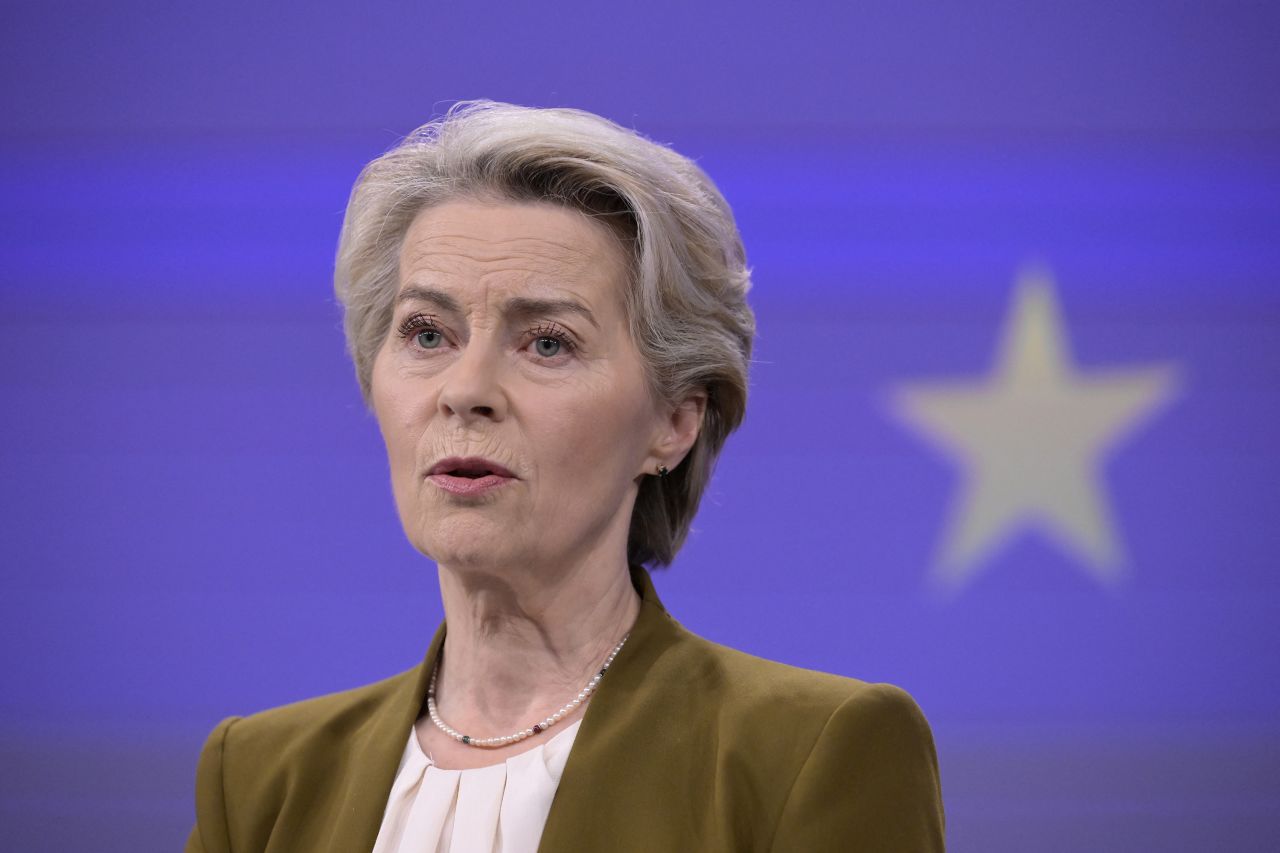
European Commission President Ursula von der Leyen said on Sunday that Europe would help to rebuild a Syria that is safe for all minorities after the fall of the Bashar al-Assad regime.
Saudi Arabia says it is satisfied with the steps taken to ensure the safety of Syrians
Saudi Arabia expressed its support Sunday for the choices of the Syrian people.
The kingdom said it was satisfied with the “positive steps” taken to ensure the Syrian people’s safety as rebel forces took Damascus, ending the long rule of President Bashar al-Assad. People celebrated in the streets of the Syrian capital as questions now arise about what the transition to a governing authority will look like.
Saudi Arabia called on the international community to “not interfere” in Syria’s internal affairs and to help Syrians overcome the difficulties they went through “over many long years, during which hundreds of thousands of innocent people were killed and millions were displaced and refugees, and during which foreign militias ravaged Syria to impose foreign agendas on the Syrian people.”
US spoke with opposition forces on Thursday about journalist Austin Tice’s whereabouts in Syria
US officials reached out on to Syrian opposition forces on Thursday about Austin Tice, a freelance journalist held in Syria since 2012, hoping to learn more about his whereabouts, a US official told CNN.
As Syrian rebels raced toward Damascus, social media was flooded with videos of prisons being flung open and prisoners held for years being freed by the Syrian rebels. The opposition’s advance gave US officials both hope and concern about what it would mean for Tice.
Syrian rebels claimed control of Syria’s most notorious prison, Saydnaya Prison, on Sunday.
The Biden administration has been operating under the belief that Tice is alive but his condition and location are unknown. Tice was captured near Damascus over 12 years ago and on Friday his family said they had a new source who told them Tice is alive and has been treated well. A source familiar with the Biden administration’s assessment told CNN there had been no change in what they knew.
At a news conference, Tice family members expressed profound frustration with how the Biden administration has answered their questions and handled the case of their son.
CNN has asked the National Security Council for comment.
With rebels now in control of Damascus, what’s next for the war-weary nation
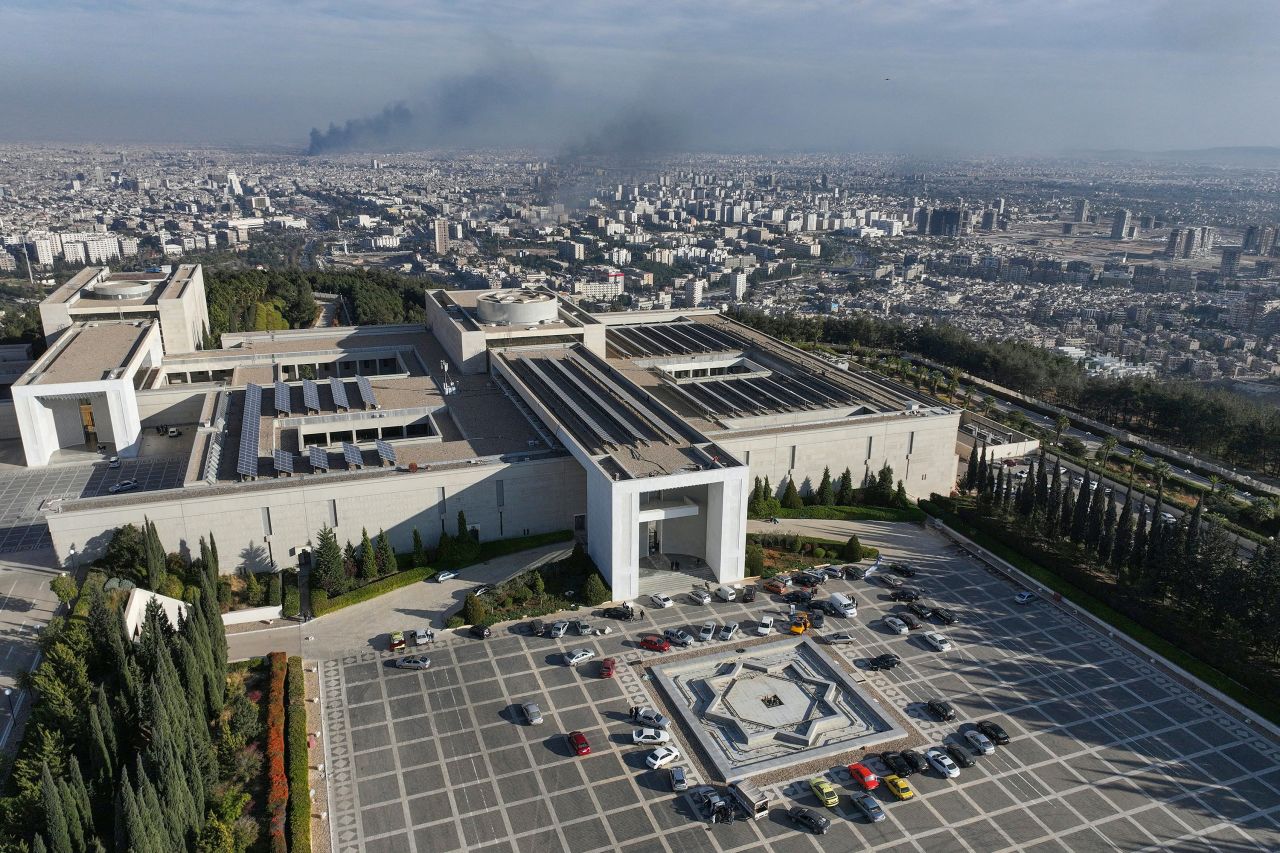
The red, white, green and black Free Syrian Army flag flew over Damascus on Sunday as thousands of residents lined the main square in bursts of defiant jubilation – after President Bashar al-Assad relinquished his grip on power.
Over the past 11 days, a rebel alliance charged through Syria in the boldest challenge to the Assad rule in years – following decades of brutal reign by the Assad dynasty marked by fighting, bloodshed and an oppressive political crackdown.
Now, as the anti-regime coalition starts to disband Assad’s military, and lays out its vision for a post-Assad Syria, experts wonder if the next phase will be a new dawn for a people strangled by a brutal autocracy – or whether sectarianism will bring a different type of authoritarian rule.
Syria’s armed opposition ultimately plans to form a government defined by institutions and a “council chosen by the people,” Abu Mohammad al-Jolani, the militant figure driving the latest rebel swing, told CNN. He heads the dominant group in the coalition, Hayat Tahrir Al-Sham (HTS), a former Al Qaeda affiliate.
Read more here about whether rebellion could lead to a new dawn in Syria.
Where is Assad after the fall of Damascus?
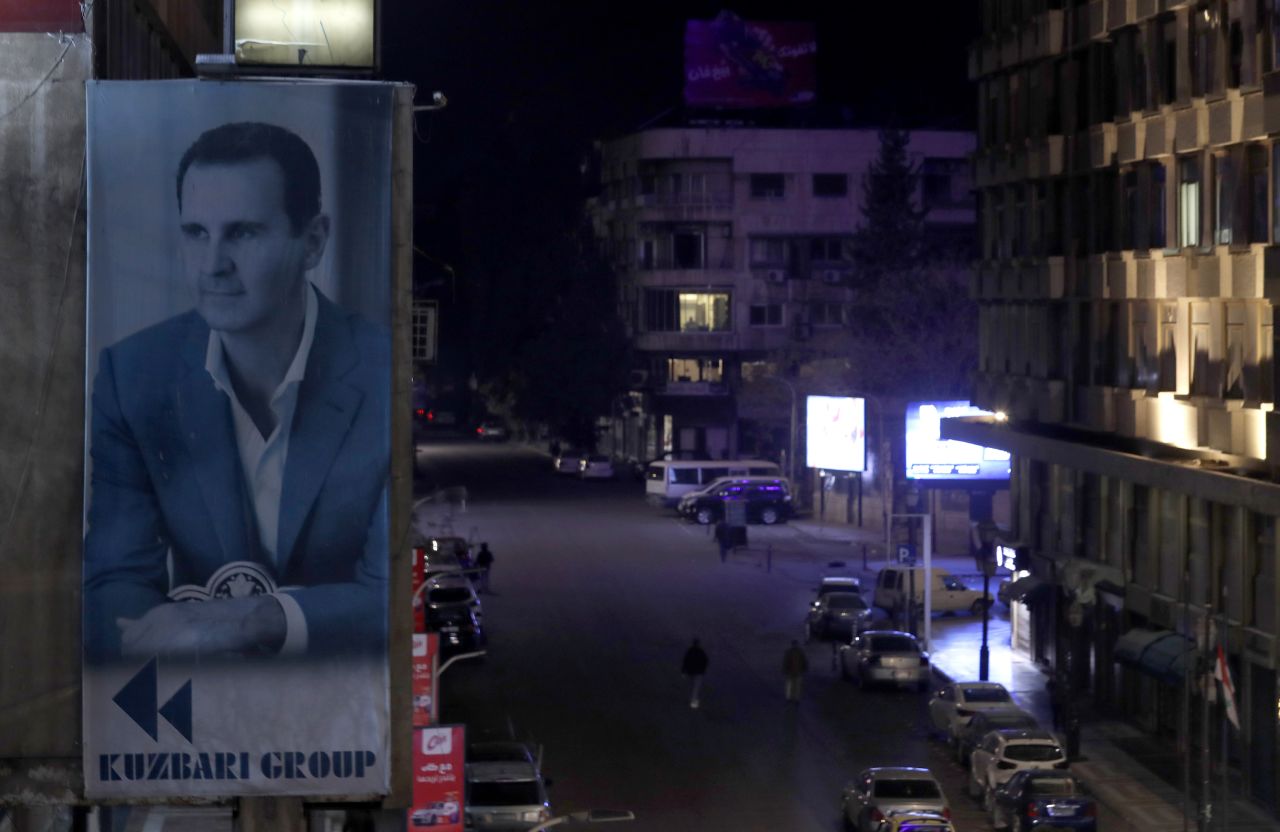
As many in Syria celebrated the end of the long rule of Bashar al-Assad, rumors swirled about his whereabouts.
Assad had not been seen or heard from since rebels declared Damascus “liberated” after sweeping through the capital and seizing key sites. The location of his wife and two children were also not known.
Since the uprising began, and the rebels rapidly advanced through the country, Assad kept a low profile.
After meeting with Iran’s foreign minister last weekend, he pledged to fight “terrorist organizations” but otherwise made little comment as the rebels captured major cities.
On Saturday, as the rebels encircled Damascus, a source told CNN that Assad was nowhere to be found in the city.
But about an hour ago, there was finally an answer. Russian state media reported that Assad and his family arrived in Moscow and been granted asylum by the government.
The headline and post have been updated to reflect reporting on Russian state media that Assad and family have arrived in Moscow.
Syrian rebel leader Jolani hails victory in first comments since ousting Assad
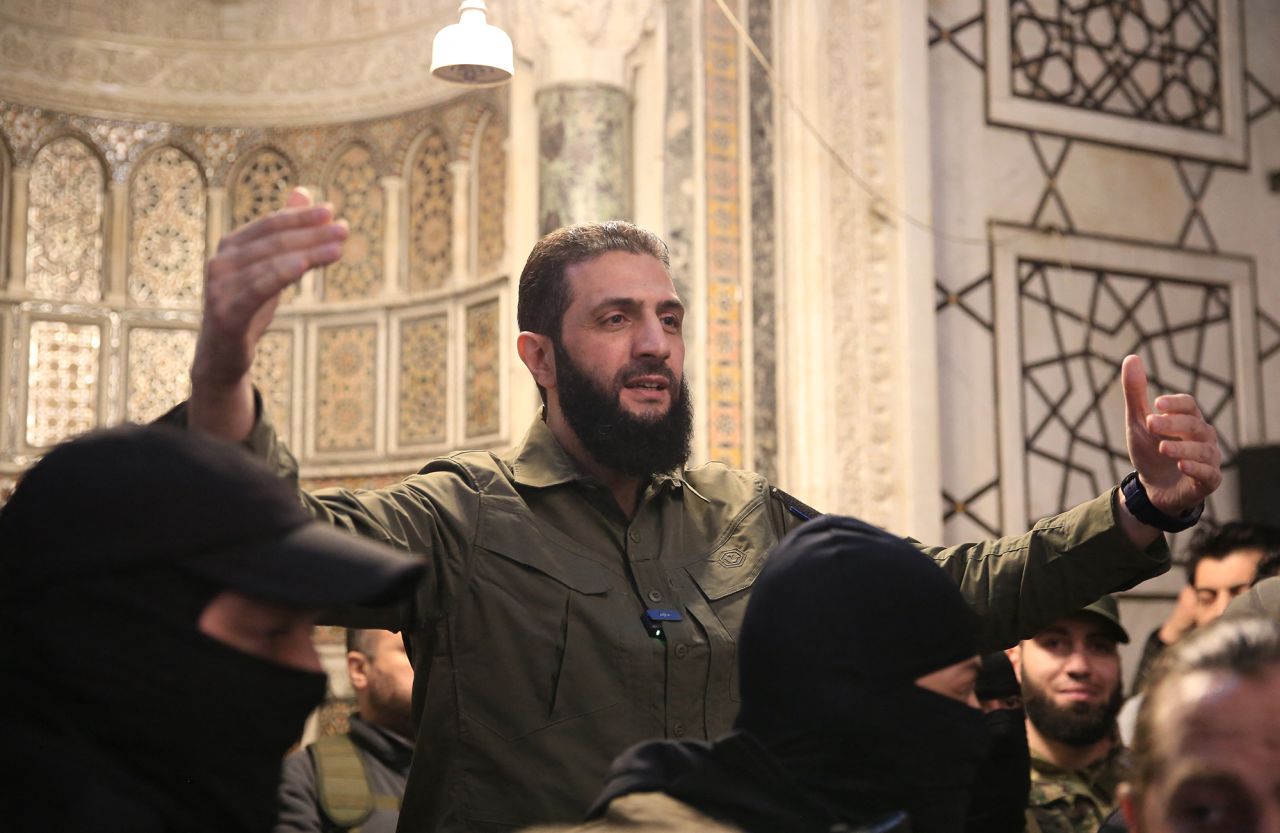
The leader of the main group behind Syria’s armed opposition, Abu Mohammad al-Jolani, called the toppling of President Bashar al-Assad a “victory for the entire Islamic nation” in his first public remarks since the rebels captured Damascus.
In a speech delivered inside a mosque in the capital, Jolani added that Syria had been a “playground for Iranian ambitions, spreading sectarianism, stirring corruption,” but now, “Syria is being purified by the grace of God Almighty and through the efforts of the heroic Mujahideen.” Iran and its proxy Hezbollah were key backers of Assad’s government.
“This is a nation that, if its rights are taken, will continue to demand them until they are restored,” Jolani said, adding that HTS was liberating people who were imprisoned by the Assad regime.
“My brothers, I left this land over 20 years ago, and my heart longed for this moment,” Jolani said to the crowd gathered at Umayyad mosque.
“There is not a single household in Syria that the war has not touched. Praise be to God, today Syria is recovering.”
Rebel fighters appear inside the Syrian presidential palace
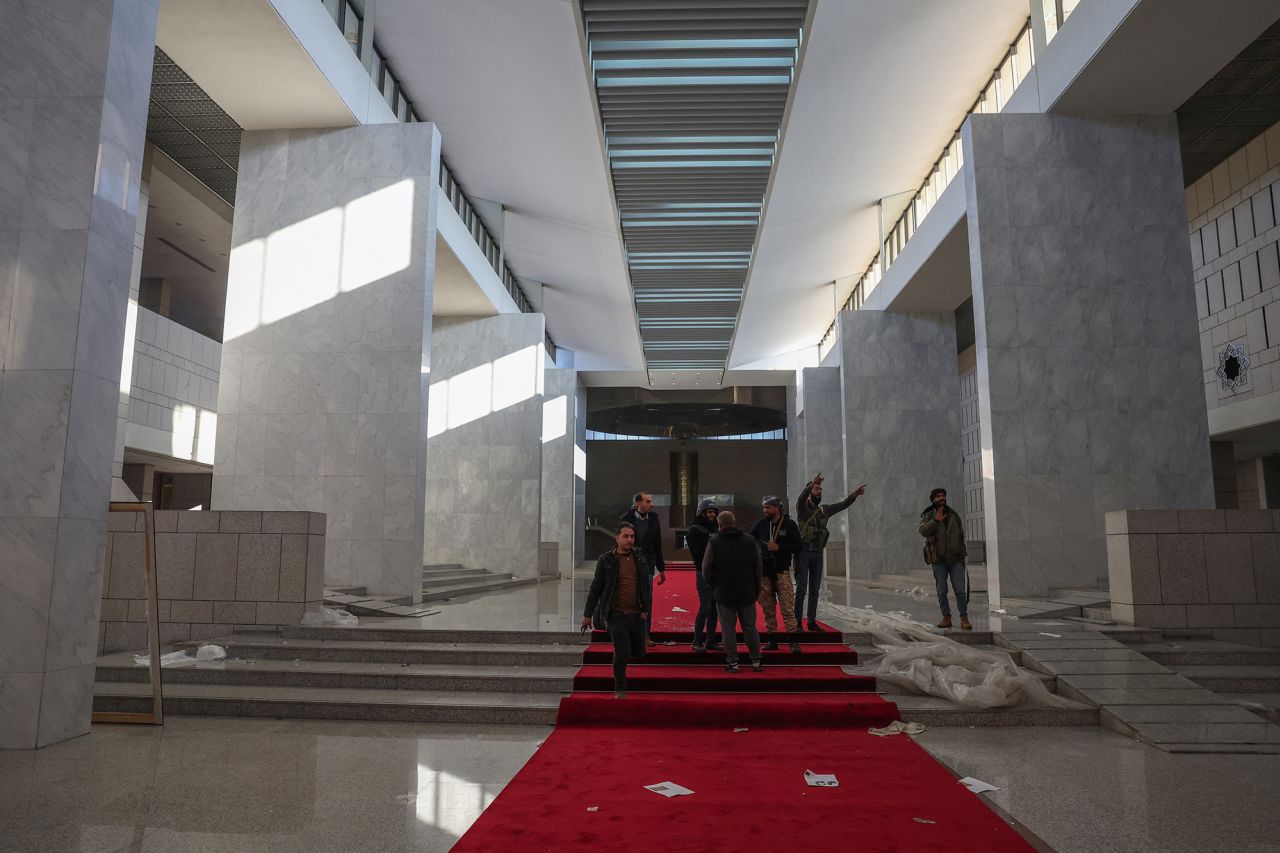
Rebel fighters walk into the Syrian presidential palace Sunday after they captured Damascus and President Bashar al-Assad fled the country.
Here are more photos from the dramatic developments over the past few days in Syria.
Biden will meet today with his national security team on Syria, White House says
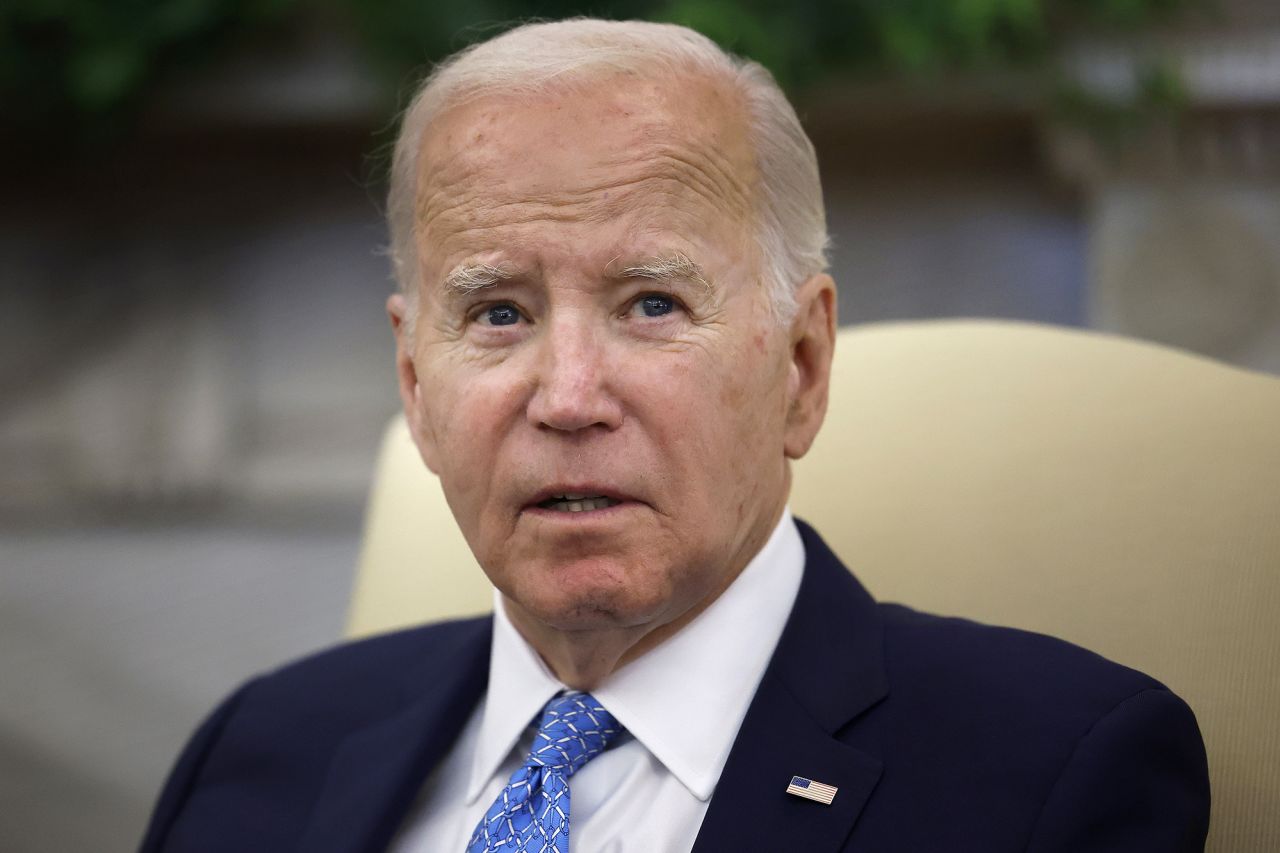
US President Joe Biden is set to receive an update Sunday morning from his national security team on the extraordinary developments in Syria, the White House said.
“President Biden will meet with his national security team this morning to receive an update on the situation on Syria,” National Security Council spokesperson Sean Savett posted on X.
The Biden administration is keenly aware that the end of the Assad regime — and what happens next — could fundamentally reshape the balance of power in the Middle East.
Biden has been closely monitoring the “extraordinary” events, Savett said in an earlier statement, and the administration has been “in constant touch with regional partners.”
Analysis: How wars in Ukraine and Lebanon changed Syria’s fortunes
In every crisis lies opportunity, and in every opportunity lurks crisis.
The startling advance of Syria’s opposition in a week is the unintended consequence of two other conflicts, one near and one far. It leaves several key US allies with a new and largely unknown Islamist-led force, governing swathes of their strategic neighbor – if not most of it, given the pace of events, by the time you read this.
Syria has absorbed so much diplomatic oxygen in the past 20 years, it is fitting this week of sweeping change popped up as if from a vacuum. Since the invasion of Iraq, the US has struggled to find a policy for Syria that could accommodate the vastly different needs of its allies Israel, Jordan, Turkey, and its sometime partners Iraq and Lebanon.
Syria has always been the wing-nut of the region: linking Iraq’s oil to the Mediterranean, the Shia of Iraq and Iran to Lebanon, and NATO’s southern underbelly Turkey to Jordan’s deserts. George W Bush put it in his Axis of Evil; Barack Obama didn’t want to touch it much in case he broke it further; Donald Trump bombed it once, very quickly.
It has been in the grip of a horrifically brutal dictatorship for decades. There seemed little more you could subject Syria to, until this week brought it liberation, thus far at an unknown cost, with vast caveats.
The swiftly changing fate of Bashar al-Assad was not really made in Syria, but in southern Beirut and Donetsk. Without the physical crutches of Russia’s air force and Iran’s proxy muscle Hezbollah, he toppled when finally pushed.
Read more here about two wars that changed Syria’s fortune.
Israeli military issues urgent warning to residents of southern Syria
The Israeli military’s Arabic spokesperson has issued an “urgent warning” to residents in southern Syria on Sunday.
In a post on X, Avichay Adraee issued warnings for five areas. This comes as Israeli Prime Minister Benjamin Netanyahu ordered the country’s military to seize the buffer zone on Israel’s border with Syria Sunday.
Addressing Syrian citizens, Adraee said that “fighting in your area is forcing the IDF (Israel Defense Forces) to take action, and we do not intend to harm you.”
“For your safety, please remain in your homes and do not go outside until further notice,” he said.
Watch as Syrians celebrate the fall of the Assad regime
The long rule of Syrian President Bashar al-Assad is over, after rebels swept into the capital Damascus. The fighters declared the city “liberated” in a statement carried on state television as Syrians celebrated the fall of Assad’s regime in the streets.
Iraq says it won’t accept foreign meddling in Syria’s affairs
Iraq has urged “non-interference in Syria’s internal affairs” and said it wouldn’t accept foreign meddling in the country.
The Iraqi government supports efforts to initiate an “inclusive dialogue encompassing all factions and orientations in the Syrian arena, in accordance with the interests of the Syrian people,” he continued, including the establishment of a constitution that safeguards the rights of Syrians and “supports Syria’s rich cultural, ethnic, and religious diversity.”
But if outside sources try to meddle in Syrian affairs, this will “only deepen the conflict and divisions in Syria,” Al-Awadi warned.
Taliban foreign ministry congratulates Syrian rebels and calls for the establishment of Islamic government
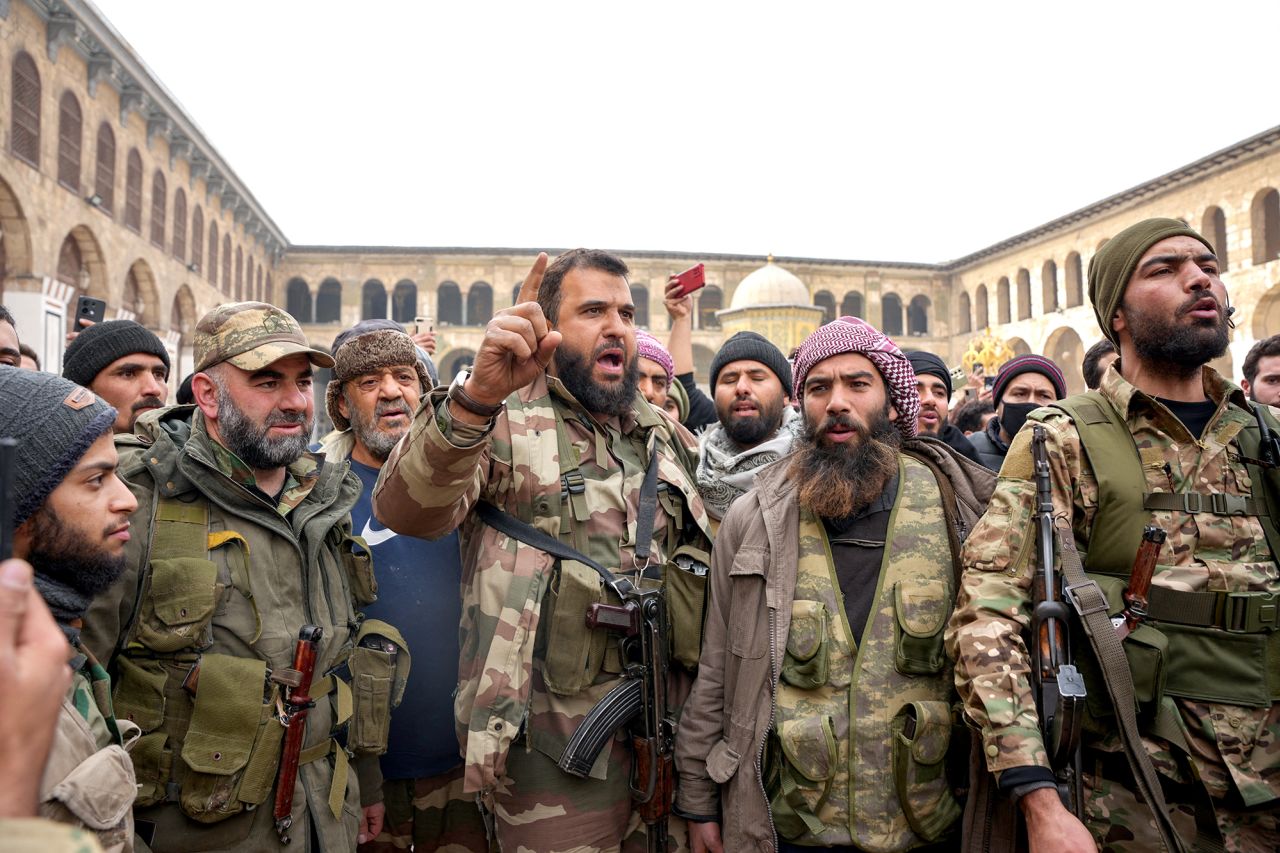
The Taliban’s foreign ministry on Sunday congratulated the Syrian people and rebel forces, in particular Hayat Tahrir Al-Sham, which led the sweeping rebel offensive, in the wake of the toppling of President Bashar al-Assad’s regime.
Afghanistan “congratulates the leadership of the movement and the people of Syria on the recent developments, which have resulted in the removal of key factors contributing to conflict and instability,” the Taliban foreign ministry said in a statement.
In pictures: The fall of Syria’s Assad regime
The long rule of Syrian President Bashar al-Assad is over after rebels swept into the capital Damascus. The fighters declared the city “liberated” in a statement carried on state television. Syrians have been celebrating in the streets.
The removal of Assad brings an end to more than 50 years of his family’s autocratic rule of the nation of about 23 million, which has been fractured by more than a decade of civil war.
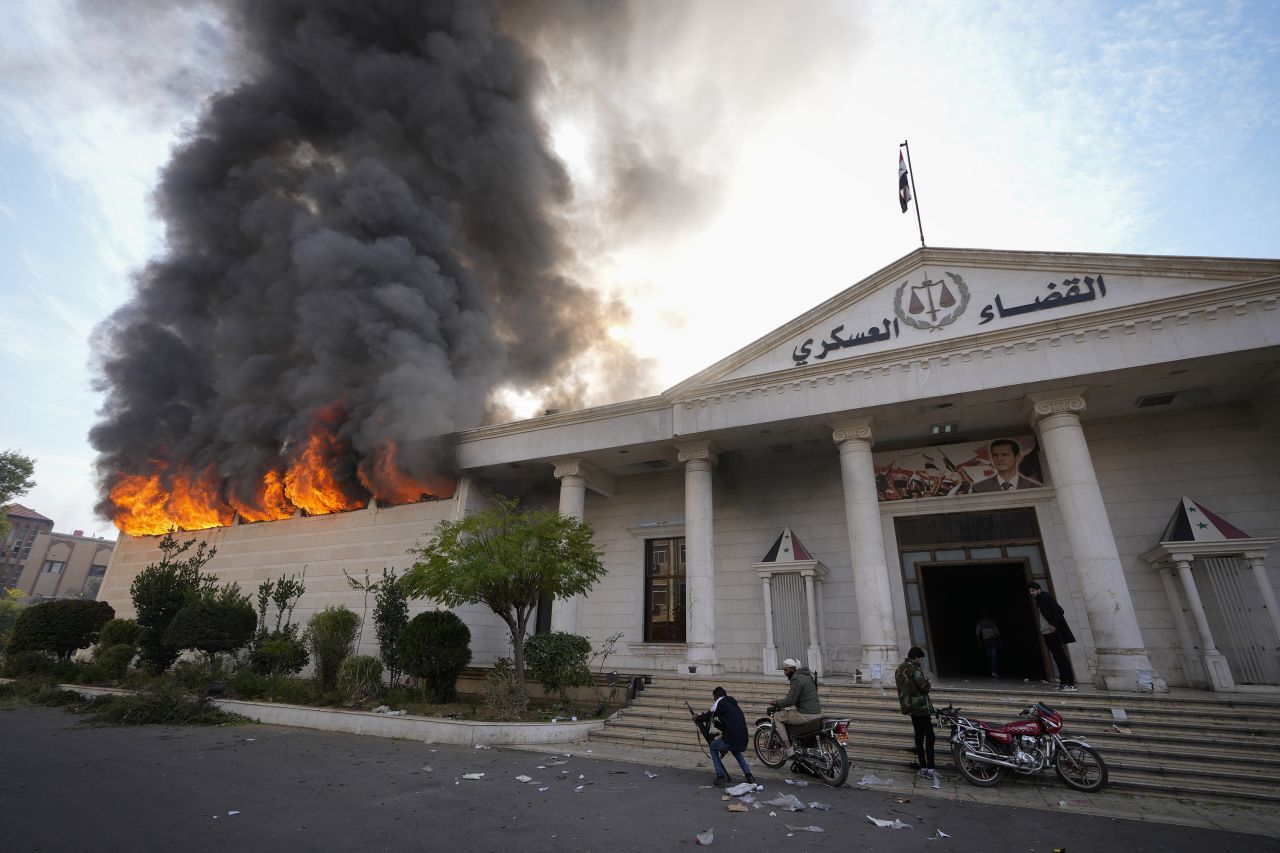
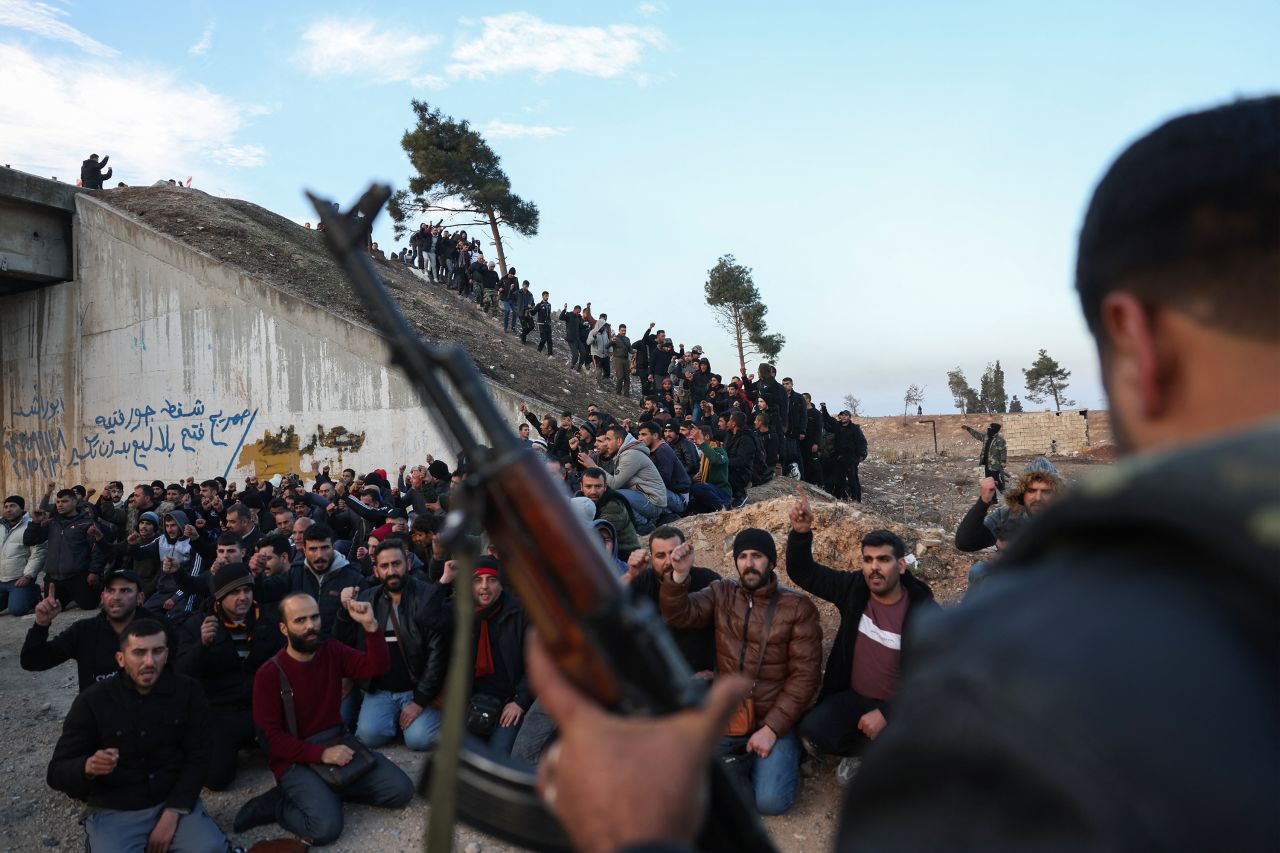
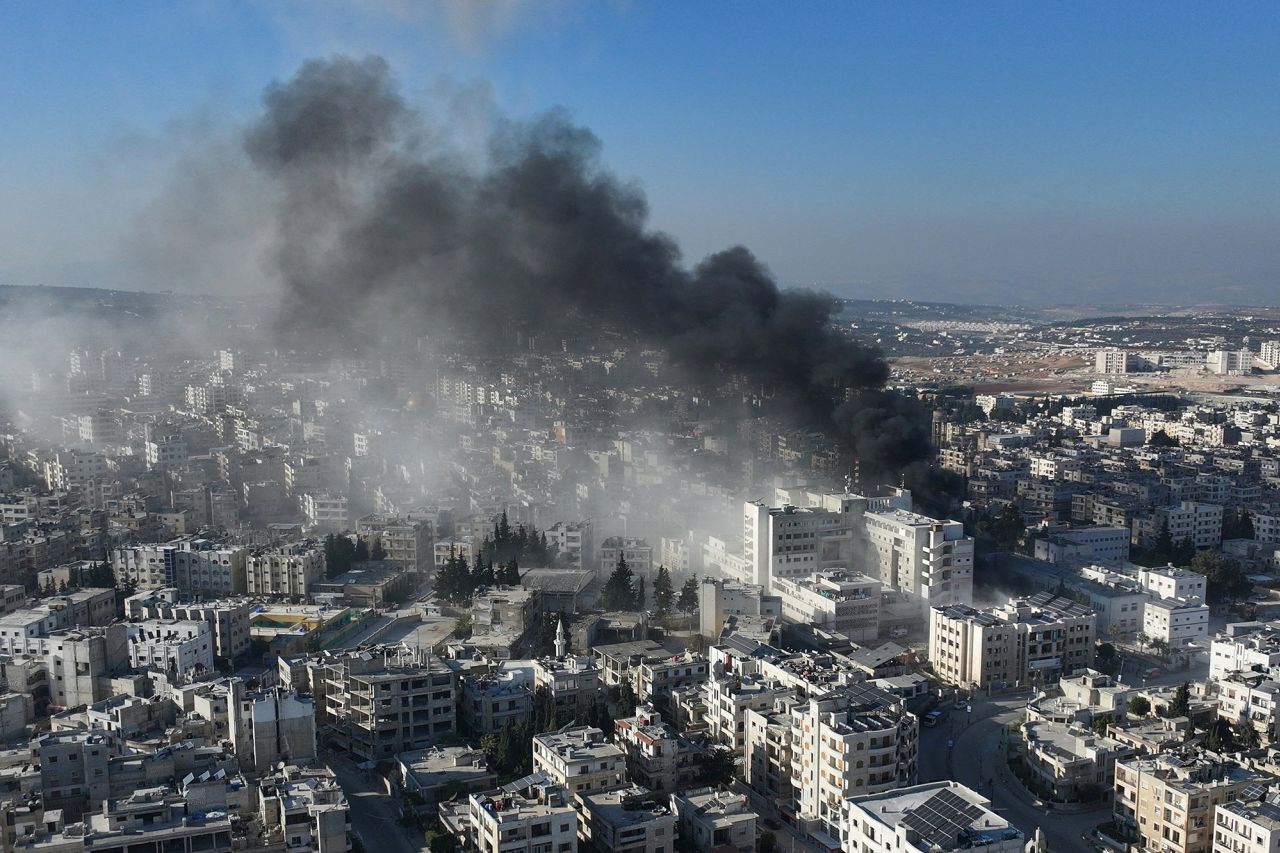
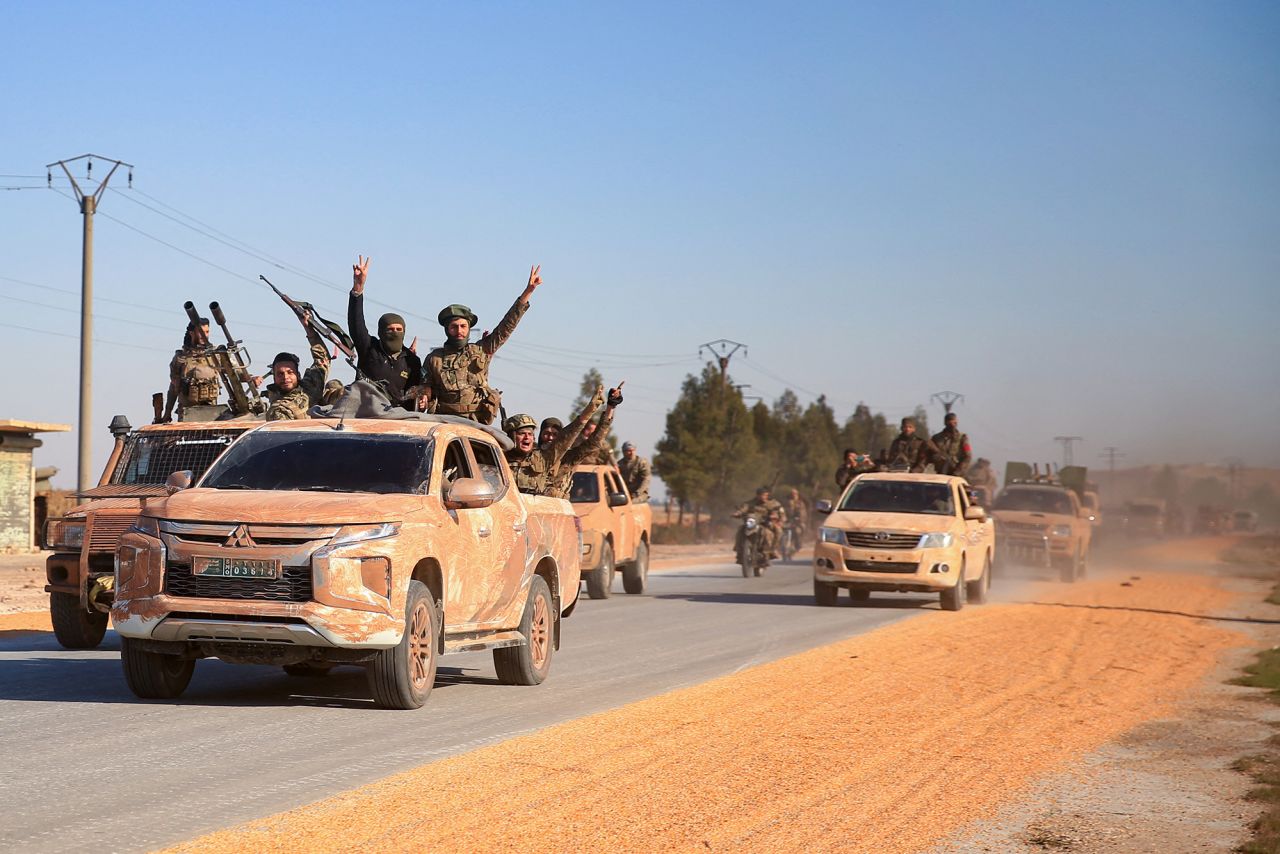
See more photos here from the historic developments in Syria.
Lebanese army deploys reinforcement units along borders with Syria

The Lebanese army has deployed reinforcement troops along its eastern and northern borders with Syria, according to an army statement released on Sunday.
Lebanese Prime Minister Najib Mikati held a call Sunday with leaders of the army and security services, during which he stressed “the priority of tightening control over the border situation and distancing Lebanon from the repercussions of the developments in Syria,” according to a government readout.
The prime minister also highlighted the need to bolster the capabilities of Lebanon’s national commission for missing people “in light of the release of hundreds of prisoners from Syrian prisons.”
Many of the citizens that disappeared during Lebanon’s long civil war are thought to be held in Syrian prisons, particularly the infamous Saydnaya prison, with some having been reported missing since the 1970s.
Netanyahu orders Israeli military to seize Syria buffer zone
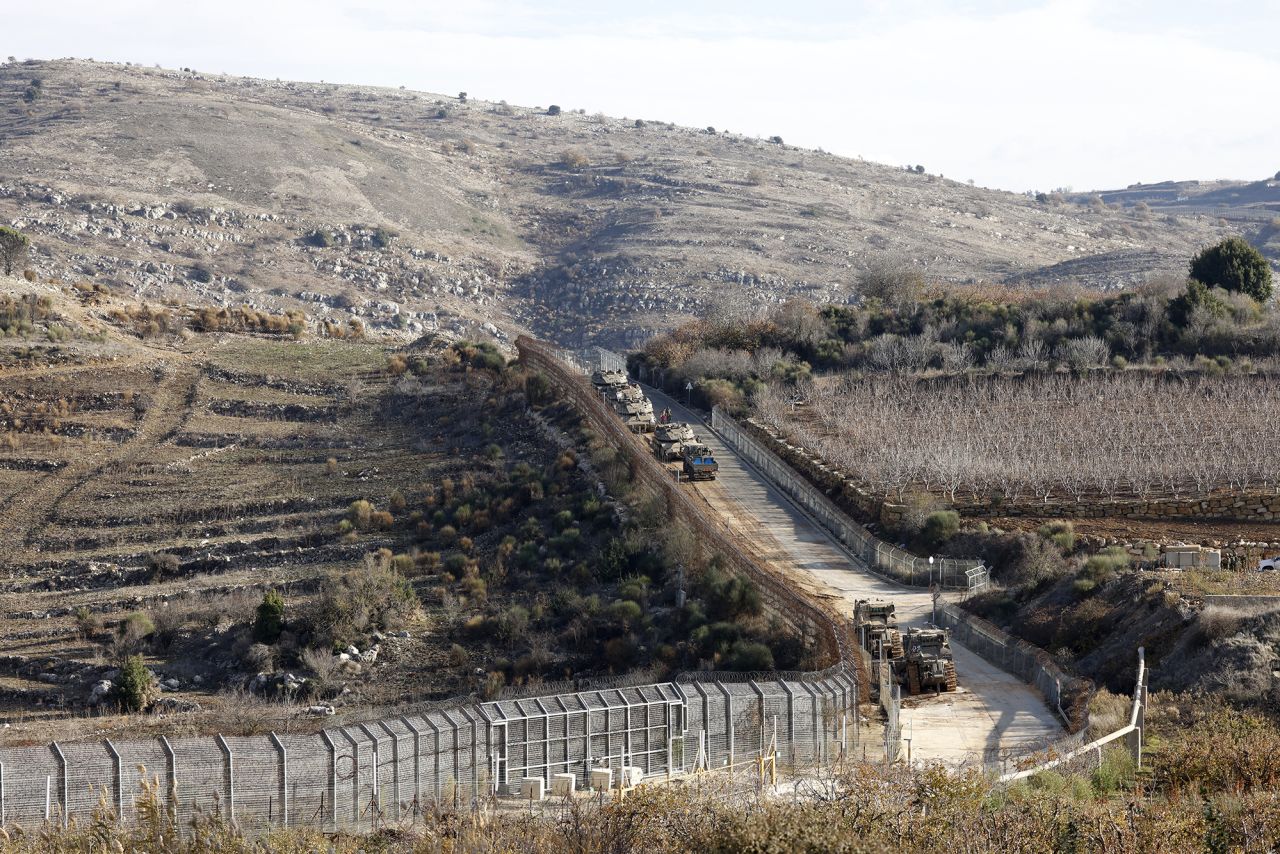
Israeli Prime Minister Benjamin Netanyahu on Sunday said that he had ordered the military to “take control” of the buffer zone that separates the Israeli-occupied Golan Heights from the rest of Syria.
It would be the first time Israeli troops would be stationed in the buffer zone since a 1974 agreement establishing the line of control between Israel and Syria, though they have in the past entered the no-man’s land for brief periods.
Israel captured the Golan Heights from Syria in 1967 and annexed it in 1981. Most international powers, except for the United States, recognize it as occupied Syrian territory.
The Israel Defense Forces announced the deployment, saying it was done “to ensure the safety of the communities of the Golan Heights and the citizens of Israel” after Syrian troops reportedly abandoned their posts. The military’s statement added that “the IDF is not interfering with the internal events in Syria.”
Netanyahu also said that the collapse of Bashar al-Assad’s regime in Syria was “a direct result” of Israel’s military campaign against Iran and its proxy in Lebanon, Hezbollah. “This is a historic day in the history of the Middle East,” he said. Israel is “pursuing a policy of good neighborliness,” he said.
Iran will respect Syria’s “sovereignty and territorial integrity,” foreign ministry says
Iran will respect Syria’s “unity, national sovereignty, and territorial integrity,” the Iranian foreign ministry said in a statement on Sunday.
The foreign ministry added that it expects “friendly” relations to continue with Syria, despite the fall of President Bashar al-Assad’s regime. Iran and its proxy Hezbollah were key backers of Assad.
A US official told CNN earlier that events in Syria mark the collapse of “Iran’s artifice” across the Middle East.
France’s Macron commends the fall of a “barbaric state” as European leaders react to rebels taking Damascus
French President Emmanuel Macron has commended the fall of what he called a “barbaric state” on Sunday, as rebels toppled Syrian President Bashar al-Assad and took the capital city Damascus.
Also on social media, EU foreign policy chief Kaja Kallas said that the end of Assad’s rule in the country is a “positive and long-awaited development,” adding that she is in close contact with ministers from the region.
“Our priority is to ensure security in the region. I will work with all the constructive partners, in Syria and in the region,” she said. “The process of rebuilding Syria will be long and complicated and all parties must be ready to engage constructively.”
German Foreign Minister Annalena Baerbock called the end of the Assad regime “a big relief for millions of people in Syria.” She urged that “the country must not fall into the hands of other radicals – under whatever disguise. We therefore call on all parties to the conflict to act with regard to their responsibility for all Syrians.”
Meanwhile, Ukranian Foreign Minister Andrii Sybiha suggested that Assad’s ties with Russia may have helped to bring him down. “Assad has fallen. This is how it has always been and will always be for dictators who bet on Putin. He always betrays those who rely on him. The main goal now is to restore security in Syria and effectively protect its people from violence,” Sybiha said.
Turkey calls on international community to support the Syrian people

The international community must rally behind the Syrian people following the toppling of President Bashar al-Assad, Turkey’s foreign minister said on Sunday.
Fidan said that Turkey calls on “all actors in and outside the region to act with prudence and calm and to refrain from steps that could further destabilize the region,” adding that it will be watchful of groups like ISIS and the Kurdistan Workers’ Party (PKK) who could take advantage of the instability in Syria.
“With this understanding, we will continue to support a force to establish stability and security in Syria,” he said.
Fidan said that Turkey appreciated the “constructive approaches of Russia and Iran,” who he said came together on Saturday to discuss the situation with Turkey and the United Nations’ Special Envoy for Syria. Saudi Arabia, Qatar, Iraq, Egypt and Jordan also contributed to discussions, he said.
Rebels appear intent on avoiding power vacuum in Syria, analyst says
The rebel groups that have toppled Syrian President Bashar al-Assad seem intent on avoiding a power vacuum in the country, HA Hellyer, scholar at the Carnegie Endowment for International Peace, told CNN on Sunday.
“The question, I think, is going to be: How are these rebels going to transition into a more governing authority?” he said.
Thus far, Hellyer said, he is cautiously optimistic that the rebels “are intent on trying to avoid a vacuum (or) a very chaotic sort of transfer.”
Hellyer suggested that there are many reasons why the international community should put in “as much effort” as possible to help in the “rebuilding of huge portions of the country,” including reasons related to security and migration.
Jordan’s King Abdullah urges avoidance of any conflict in Syria that “could lead to chaos”
Jordan’s King Abdullah on Sunday urged stability and avoidance of further conflict in Syria, as the long rule of Syrian President Bashar al-Assad ended with rebel forces taking the capital Damascus.
Jordan shares its northern border with Syria.
The King added that “Jordan stands with the Syrian people and respects their will and choices,” according to the statement.
Russia says Assad has fled Syria as regime collapse met with jubilation. Here’s the latest
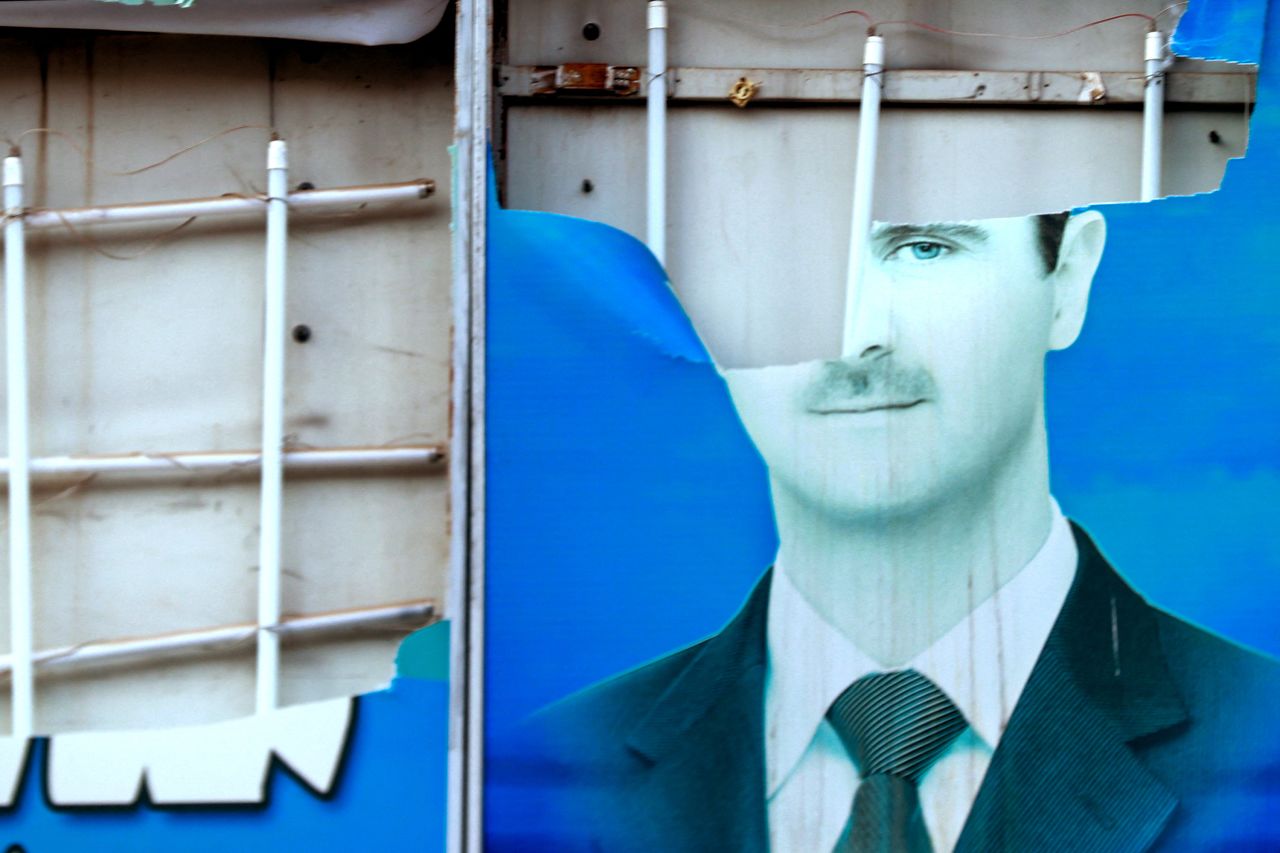
Syrian rebels have swept into the capital Damascus and declared the city “liberated,” bringing a sudden end to the long rule of Syrian President Bashar al-Assad.
Russia’s foreign ministry say Assad has left the country and given instructions to transfer power peacefully. There have been jubilant scenes in Damascus — one man said his feelings were “indescribable.”
Here’s what you need to know:
- Damascus “liberated”: Syrian rebels on Sunday morning declared the capital Damascus “liberated” after entering the city to scant resistance from regime forces. The toppling of Assad brings an end to more than 50 years of his family’s autocratic rule of the nation of about 23 million, which has been buffeted and fractured by more than a decade of civil war.
- Assad leaves Syria: Russia’s foreign minister said in a statement Sunday that Assad had left Syria. Assad “decided to leave the presidential post and left the country, giving instructions to transfer power peacefully,” the statement said, adding that “Russia did not participate in these negotiations.” Prior to the Russian statement being issued, a source close to the rebels told CNN that the ousted president had left Damascus under Russian protection, and a separate source said he traveled to Latakia in northwest Syria, where Russia has an airbase.
- First state TV interview: In the first state television interview with the rebels, who are led by an Islamist group, a commander said that minorities in Syria would be protected. “We address all the sects of Syria: Syria is for everyone, without exception… Syria is for the Sunni, the Druze, the Alawite. We don’t deal with people like the Assad (regime) did,” the commander said.
- President’s residence ransacked: Syrian rebels and civilians have been seen touring and ransacking residences of Assad in Damascus. Children were seen running into the entrance of Assad’s Al Rawda presidential palace as men walked out with furniture, according to a video published by Reuters. An armed man was seen carrying a rifle in the palace. Another video posted on social media showed the hallways of what appeared to be another residence in the capital with the sound of men and women celebrating.
- Syrian PM: A video showed Syrian Prime Minister Mohammad Ghazi Al-Jalali being escorted by rebels in Damascus on Sunday, purportedly to a hotel to hand over government authority. The video showed Jalali surrounded by armed men walking down some steps and entering a black SUV with another man. He has said authorities “are ready to cooperate with any leadership the people choose.”
“We won the bet”: Anchor reads first bulletin on Syrian state television since regime’s fall
A television anchor read the first news bulletin on Syrian state television on Sunday after the Syrian President Bashar al-Assad was toppled overnight.
“We won the bet and toppled the criminal Assad regime. Here we are now with a news brief from the building of the General Authority for Radio and Television in the Syrian capital, Damascus, presented to you by me, Youssef Al-Youssef,” he said, before providing a brief news summary.
Muted reaction in Russia over toppling of key Middle Eastern ally
Considering the fact that Russia has been one of the Assad government’s most important backers for nearly ten years, the coverage of the rebels’ takeover of Damascus has been muted on Russian state media.
The country’s state news channel, Rossiya 24, led its broadcasts with the news on Sunday morning, but instead of the wall-to-wall coverage seen on Western and Middle Eastern networks, the reports were short and very matter of fact.
“Armed groups occupied the building of state radio and TV, located in the center of Damascus,” the Russian report said, showing opposition forces apparently entering the government media compound. After about a minute, coverage moved on to other news, mostly about the war in Ukraine.
Russian news agencies also had mostly secondary coverage of the historic events unfolding in Syria, often citing Western and Middle Eastern media. On the main page of the official TASS news agency, Syria ranked as only one of several headline stories rather than major breaking news treatment.
This is in line with the low-key response from Russian authorities about the collapse of the Assad government.
The Kremlin has so far not officially commented on the events, however Russia’s foreign ministry released a statement on Sunday afternoon confirming that Bashar al-Assad had left the country, while claiming that Russia played no role in the negotiations for the transfer of power.
Syrian rebels declare 13-hour curfew in Damascus
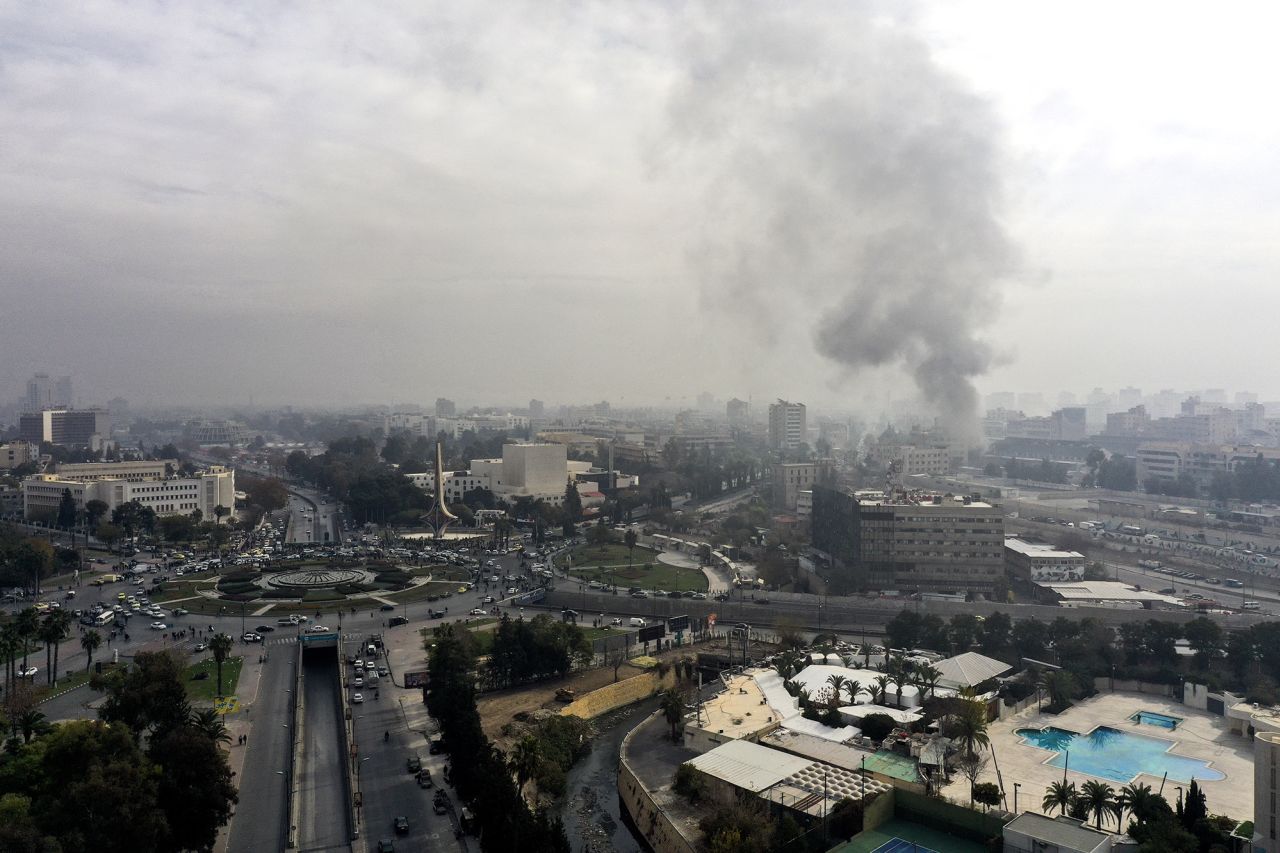
Syrian rebels have declared a 13-hour curfew in the capital Damascus from 4 p.m. local time (8 a.m. ET) Sunday until 5 a.m. (9 p.m. ET) Monday, according to a statement by their Military Operations Command on Telegram.
The Syrian capital is witnessing a significant armed rebel presence and continuous celebratory gunfire, live videos showed.
A message on Syrian state television earlier called on people not to “terrify” civilians by firing weapons in public squares.
Presidential palaces have also been ransacked, and heavy traffic has been reported in the capital.
Syria’s embassies abroad to remain operational, foreign ministry says
Syria’s foreign ministry and its embassies abroad will remain operational to serve Syrians, the foreign ministry said in its first statement since the rebel takeover of Damascus.
“Today, a new page is being written in the history of Syria inaugurating a national covenant and charter to unite Syrians and does not divide them,” the statement said.
Rebels and civilians ransack Assad’s residence in Damascus
Syrian rebels and civilians have been seen touring and ransacking residences of the country’s now former President Bashar al-Assad in Damascus.
Children were seen running into the entrance of Assad’s Al Rawda presidential palace as men walked out with furniture, according to a video published by Reuters. An armed man was seen carrying a rifle in the palace.
Another video posted on social media showed the hallways of what appeared to be another residence in the capital, with the sound of men and women celebrating. “This is the people’s money,” one man was heard saying. CNN was not able to geolocate the video.
A video geolocated by CNN showed a woman touring the kitchen of a home in the Al Maliki neighborhood of Damascus that was described as a “presidential palace.”
The well-equipped kitchen included an industrial freezer and a pizza oven. The kitchen was still stocked with fruit, vegetables and fish. A notebook showed a menu “for the madame” and “the boss” including notes on their culinary preferences, as well as recipes.
“Food for the madame: She does not like spinach – we will not cook it again. Tomorrow we will cook salmon or Latakia fish,” one entry in the notepad said, according to the video filmed by the woman in the kitchen.
Assad has left Syria, Russia says
President Bashar al-Assad has left Syria, Russia’s foreign ministry said in a statement Sunday.
Assad “decided to leave the presidential post and left the country, giving instructions to transfer power peacefully,” the statement said, adding that “Russia did not participate in these negotiations.”
“The Russian Federation is in contact with all groups of the Syrian opposition,” it said.
Before the Russian foreign ministry issued its statement, a source close to the rebels told CNN that the ousted president had left Damascus under Russian protection, and a separate source said he traveled to Latakia in northwest Syria, where Russia has an airbase.
Working out who will govern Syria would be “extremely challenging” for rebels, analyst tells CNN
Working out a new governing system in Syria would be “extremely challenging” for the rebels that have toppled the regime of President Bashar al-Assad, Jerome Drevon, a senior analyst on jihad in modern conflict at the Brussels-based think tank International Crisis Group, told CNN Sunday.
“Some groups are more structured, more organized, including [Hayat Tahrir Al-Sham] and some of its allies,” he said, whereas others are “more local entities.”
States like Turkey and Qatar will likely help with the stabilization of the country, as well as other Gulf and European nations, Drevon said, adding that Gulf Arab countries will likely step in to “favor their own interests.”
Syrian rebel commander assures state TV that minorities won’t be harmed
In the first state television interview with the rebels, a commander introduced as the leader of the operation to overthrow Bashar al-Assad’s regime in Damascus assured that minorities in Syria would be protected, emphasizing that the country belongs to all Syrians.
“We address all the sects of Syria: Syria is for everyone, without exception… Syria is for the Sunni, the Druze, the Alawite. We don’t deal with people like the Assad (regime) did,” the commander said when asked by the interviewer to reassure minorities concerned for their safety after the fall of the Assad regime.
He also called on Syrians to “safeguard all the government institutions.”
The broadcast was cut mid-interview after the sound failed.
“My feelings are indescribable”: Syrians in Damascus celebrate collapse of Assad regime
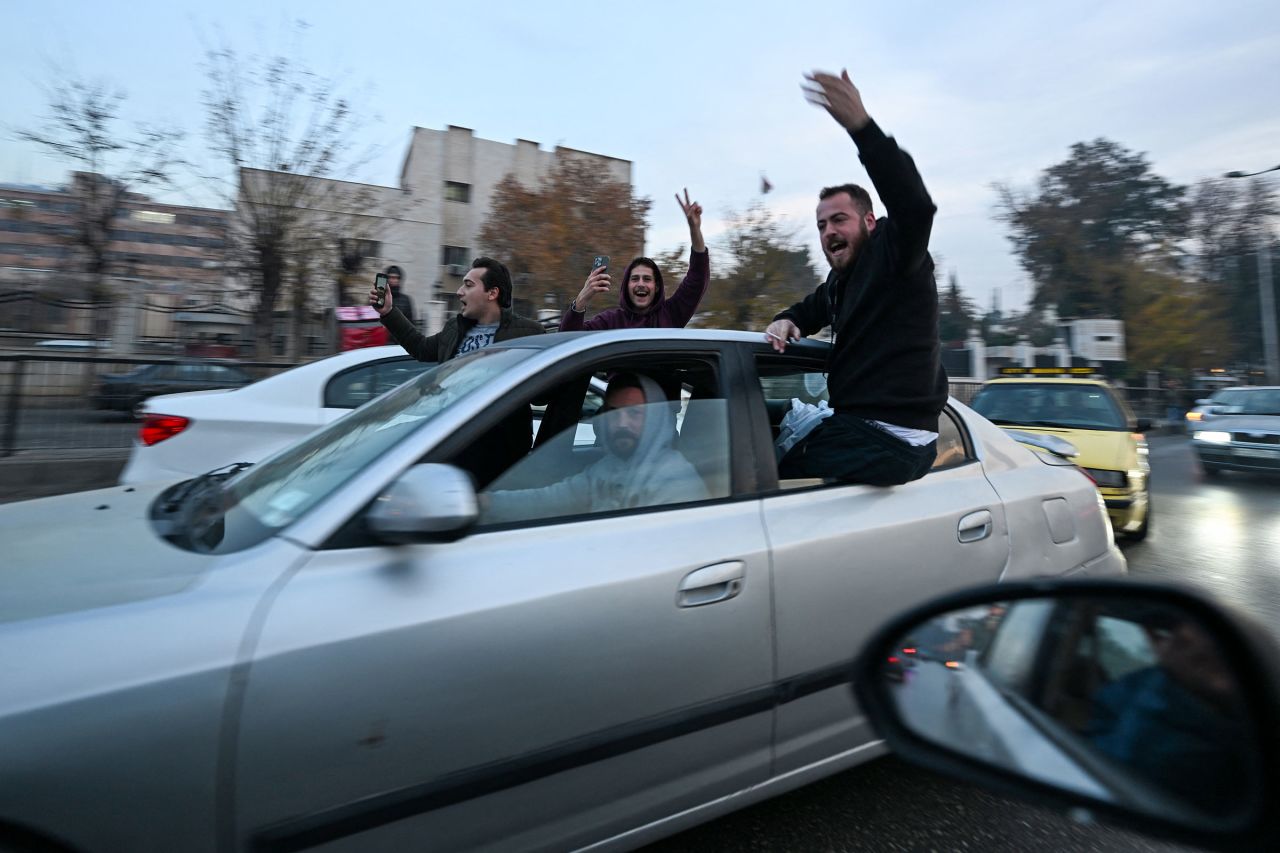
Syrians in the capital city of Damascus are celebrating the fall of President Bashar al-Assad, after rebel forces entered the city with scant resistance from regime forces and declared it liberated.
Thousands gathered in cars and on foot in the main square of Damascus to celebrate.
Omar Daher, a 29-year-old lawyer, said his feelings were “indescribable.”
“After the fear that he [Assad] and his father made us live in for many years, and the panic and state of terror that I was living in, I can’t believe it,” he told the Associated Press.
Another Damascus resident, Mohammed Amer Al-Oulabi, 44, said he wasn’t able to sleep last night until he heard the news of Assad’s fall. “From Idlib to Damascus, it only took them (the opposition forces) a few days, thank God. May God bless them, the heroic lions who made us proud.”
A local named Ghazal al-Sharif declared that “God had answered” the prayer of “every oppressed person.”
The removal of Assad – who has not been heard from since the rebels’ claim – brings an end to more than 50 years of his family’s autocratic rule of the nation of about 23 million, which has been buffeted and fractured by more than a decade of civil war.
Assad is “probably outside Syria,” Turkish foreign minister says
Syrian President Bashar al-Assad is “probably outside Syria,” Turkey’s foreign minister said on Sunday.
Asked by CNN’s Christiane Amanpour at a news conference in Doha, Qatar, if he knew where Assad might be, Hakan Fidan said: “I cannot comment on that, probably outside of Syria.”
There is conflicting information on Assad’s whereabouts – an eastern European agency believes he is in Latakia, his coastal stronghold.
The Syrian leader has not been seen or heard from publicly since rebels entered the capital early on Sunday morning.
Middle East expert says Assad’s fall a “momentous moment” but there is concern for Syria’s minorities
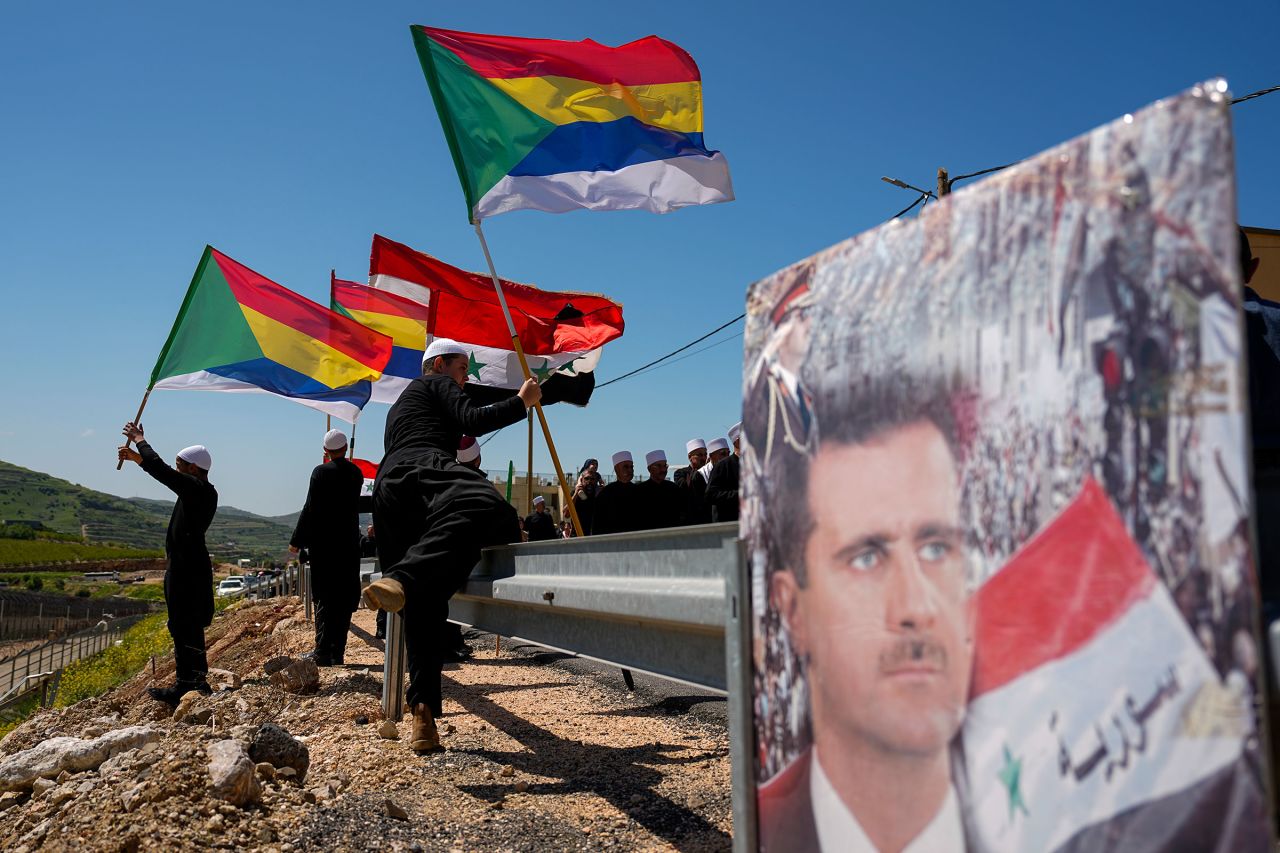
The Syrian rebels taking Damascus and toppling the country’s President Bashar al-Assad is a “momentous moment” for the Middle East, Firas Maksad, a senior fellow at the Middle East Institute, told CNN Sunday.
“This is a regime that, for over 50 years, under the mantra of freedom, unity and socialism, oppressed, tortured and disappeared many millions in Syria,” Maksad said. The regime also oppressed Lebanese and Palestinian people when the Assad regime occupied Lebanon for several years, he said.
“There’s no doubt that this is a joyous moment for many at a human level,” he said, but it could also be a “moment of potential peril” for minority communities in the country, including religious groups like Alawites, Ismailis, Druze and Christians.
“There are concerns about the more Islamist jihadi elements of this rebel force,” he said, particularly when it comes to Hayat Tahrir Al-Sham (HTS), the main group driving the country’s armed opposition, which has been designated a terrorist group by the US and many other countries.
Syrian state TV declares fall of Assad regime
Syrian rebels appear to have taken control of Syrian state TV, with the channel breaking regular programing to run a message announcing the fall of the Bashar al-Assad regime.
The message, accompanied by revolutionary and patriotic music, declared the “victory for the great Syrian revolution and the overthrow of the criminal Assad regime.”
“We call upon the great Syrian people to protect public and private properties,” another message on state TV read.
Syrians search social media for news of loved ones following capture of notorious prison
As images of prisoners being released surfaced following the seizure of the notorious Saydnaya Prison by Syrian rebels fighting to topple the Bashar al-Assad regime on Sunday, many Syrians took to social media seeking help to locate imprisoned and missing family members.
Social media videos and photos taken inside the facility following its capture by the rebels revealed cramped cells and horrific living conditions. They also showed scenes of women being released, as well as a child.
Other scenes revealed weary former prisoners, many jubilant after being released, with some receiving medical treatment.
With the fates of many prisoners still uncertain, families reacted with a mix of fear and hope, waiting to learn whether their loved ones had been freed.
One commentor on Facebook said: “Liberating Syria from the slaughterhouse of Saydnaya brings more joy than the joy of toppling the tyrant.” Others shared pictures asking for any information about family members who had been held in the prison.
Some users have begun posting the names of released prisoners to assist families awaiting news of their loved ones.
“We ask all families, revolutionaries, and journalists to photograph the released detainees so that their families can recognize them,” one commentor wrote.
Some context: In 2017, an Amnesty International report claimed as many as 13,000 people had been hanged from 2011 to 2015 at Saydnaya Prison in a secret crackdown on dissent against the Assad regime.
“Assad is gone”: President-elect Trump weighs in on Syrian regime collapse
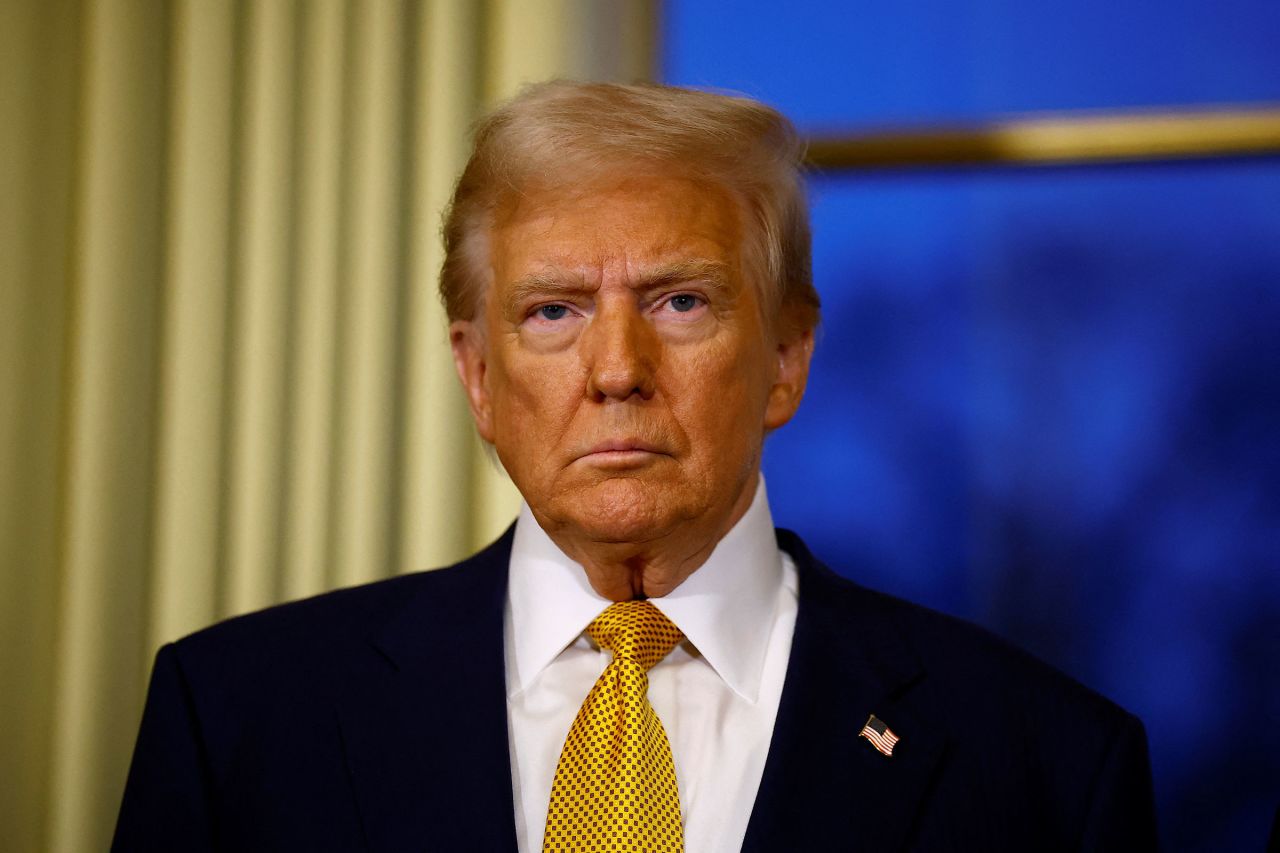
US President-elect Donald Trump took to social media early Sunday morning to weigh in on the collapse of the Bashar al-Assad regime in Syria.
“There was no reason for Russia to be there in the first place,” he said, adding “They lost all interest in Syria because of Ukraine.”
“Russia and Iran are in a weakened state right now, one because of Ukraine and a bad economy, the other because of Israel and its fighting success,” Trump said.
The president-elect then highlighted the number of soldiers killed on both sides in Russia’s war on Ukraine and called for an end to the fighting.
“There should be an immediate ceasefire and negotiations should begin,” he wrote without specifying which conflict he was referring to.
A distracted Moscow: Russia has been waging war in Ukraine for over two years, leaving it with less military might to cover Syrian President Bashar al-Assad’s forces in Syria.
For Russia, Syria’s fall means losing its closest Middle Eastern ally and undermining its ability to project power while it fights its war in Ukraine.
Iranian embassy in Damascus stormed, Iranian state media says
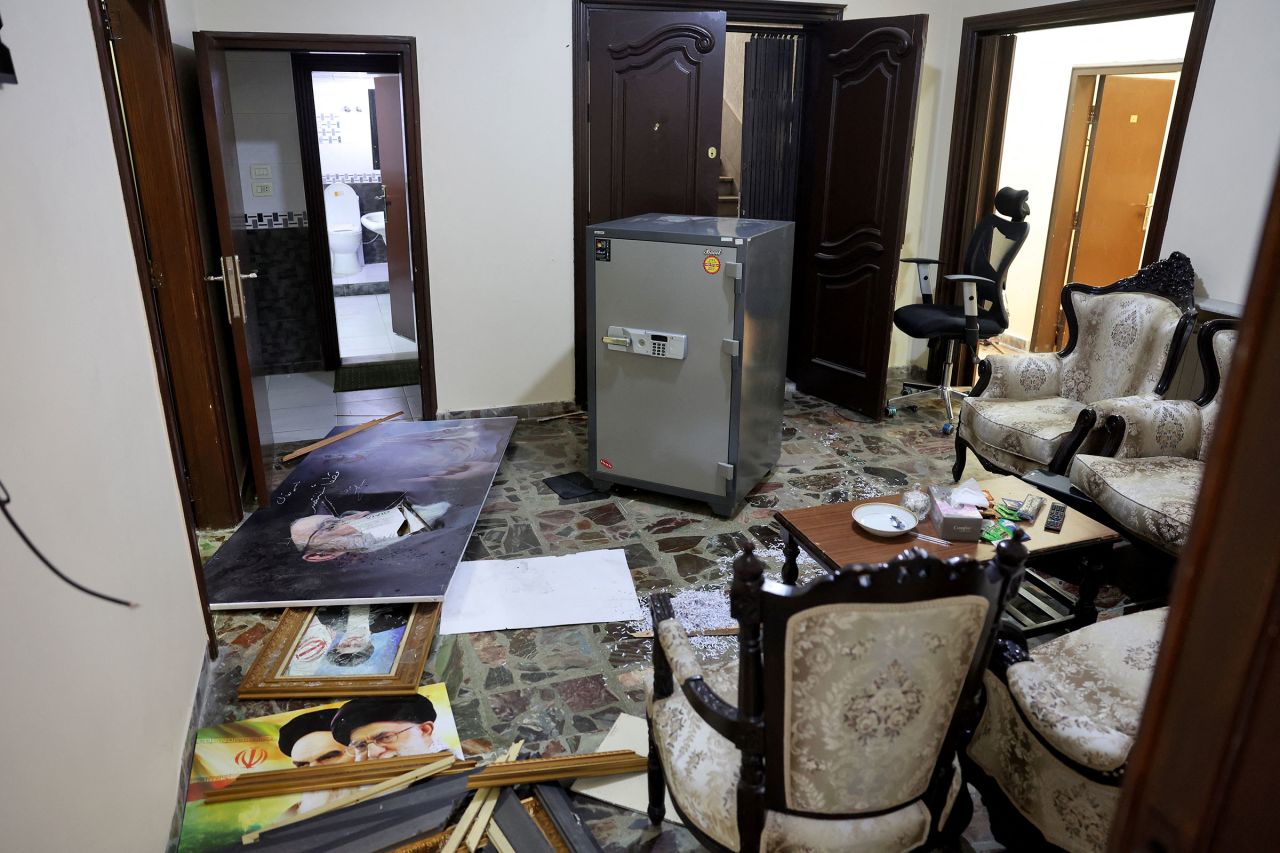
Iran’s embassy in Damascus was stormed after the rebel takeover of the Syrian capital, Iranian state-run Press TV said.
Separately, a video published on Saudi state media showed what appeared to be damage to the Iranian embassy and a torn poster of Qasem Soleimani, the commander of the Iran’s Islamic Revolutionary Guard Corps (IRGC), who was responsible for building a network of Iran-alled militias in Syria to support the Assad regime before he was killed by a US airstrike at Baghdad airport in January 2020.
Remember: The collapse of the Assad government has strong implications for Iran, which was one of the Syrian president’s key backers.
One US official told CNN that events in Syria mark the collapse of “Iran’s artifice” across the Middle East. The toppling of Assad follows the decimation of key Tehran proxies Hezbollah and Hamas in conflicts with Israel over the past 14 months.
Who is Bashar al-Assad, the Syrian leader whose family ruled with an iron fist for more than 50 years?
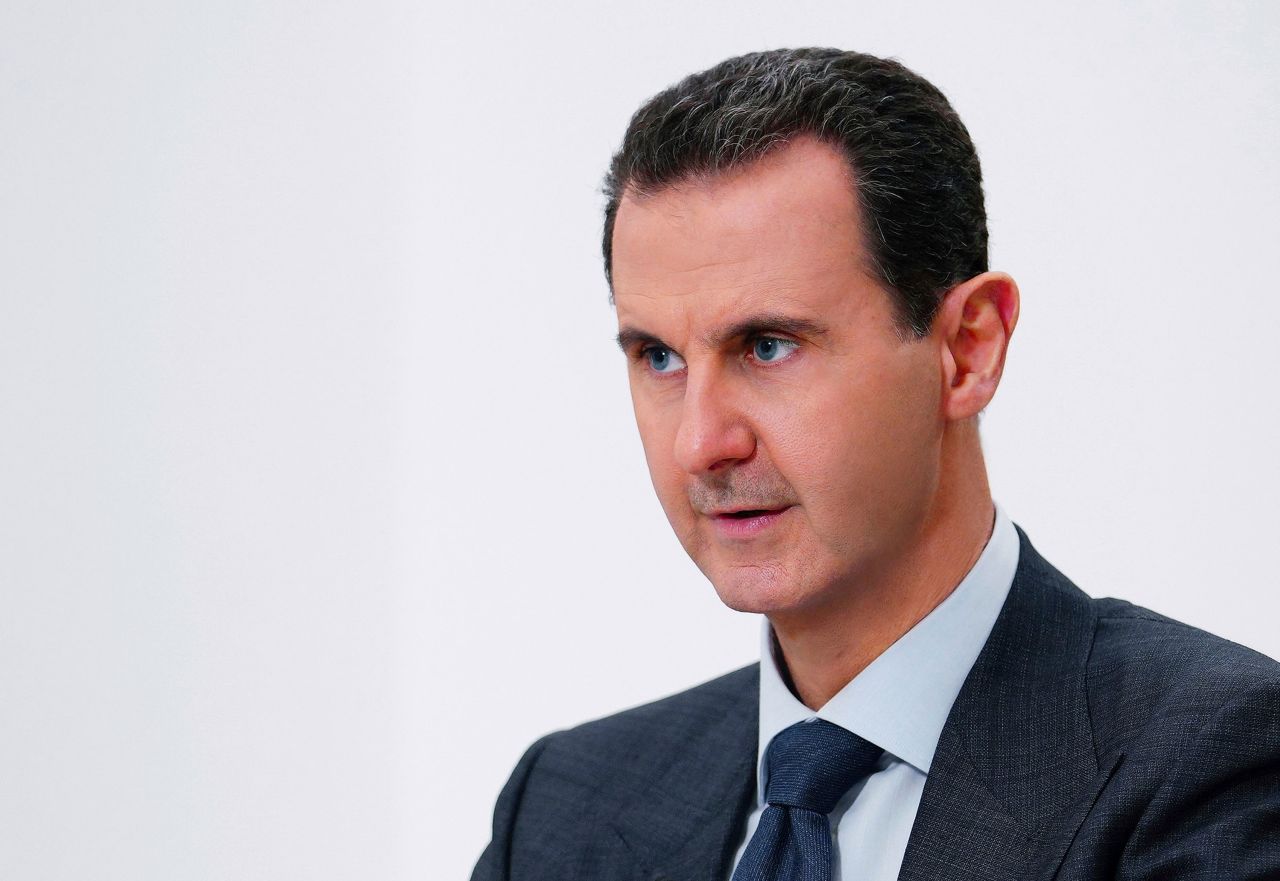
Syria’s iron-fisted leader Bashar al-Assad is the second generation of an autocratic family dynasty that held power for more than five decades and his disappearance amid a lightning rebel advance signals an astonishing reordering of power in a strategically vital Middle Eastern nation.
Assad is known for a brutal rule over Syria, which since 2011 has been devastated by a civil war that ravaged the country and turned it into a breeding ground for extremist group ISIS, while sparking an international proxy war and refugee crisis that saw millions displaced from their homes.
Family rule: Assad took power in an unopposed election in 2000 following the death of his father Hafez al-Assad, who rose from poverty to lead the Baath Party and seized power in 1970, becoming the country’s president the following year.
Like the son who succeeded him, Hafez al-Assad tolerated little dissent with oppression widespread and periodic bouts of extreme state violence.
As a second son not poised to take up his father’s mantle, Assad studied ophthalmology in London until his older brother Bassel, who had been groomed to succeed Hafez, died in a car crash in 1994. Bashar al-Assad was then thrust into the national spotlight and studied military science, later becoming a colonel in the Syrian army.
Arab Spring to civil war: Western hopes of a more moderate Syria under Assad sank when he promptly maintained his country’s traditional ties with militant groups, such as Hamas and Hezbollah. They then turned to outright condemnation of the regime after he met the 2011 pro-democracy groundswell with brutal force.
Syria then descended into civil war which has lasted since then and culminated in this week’s extraordinary events.
Video shows Syrian prime minister escorted by rebels
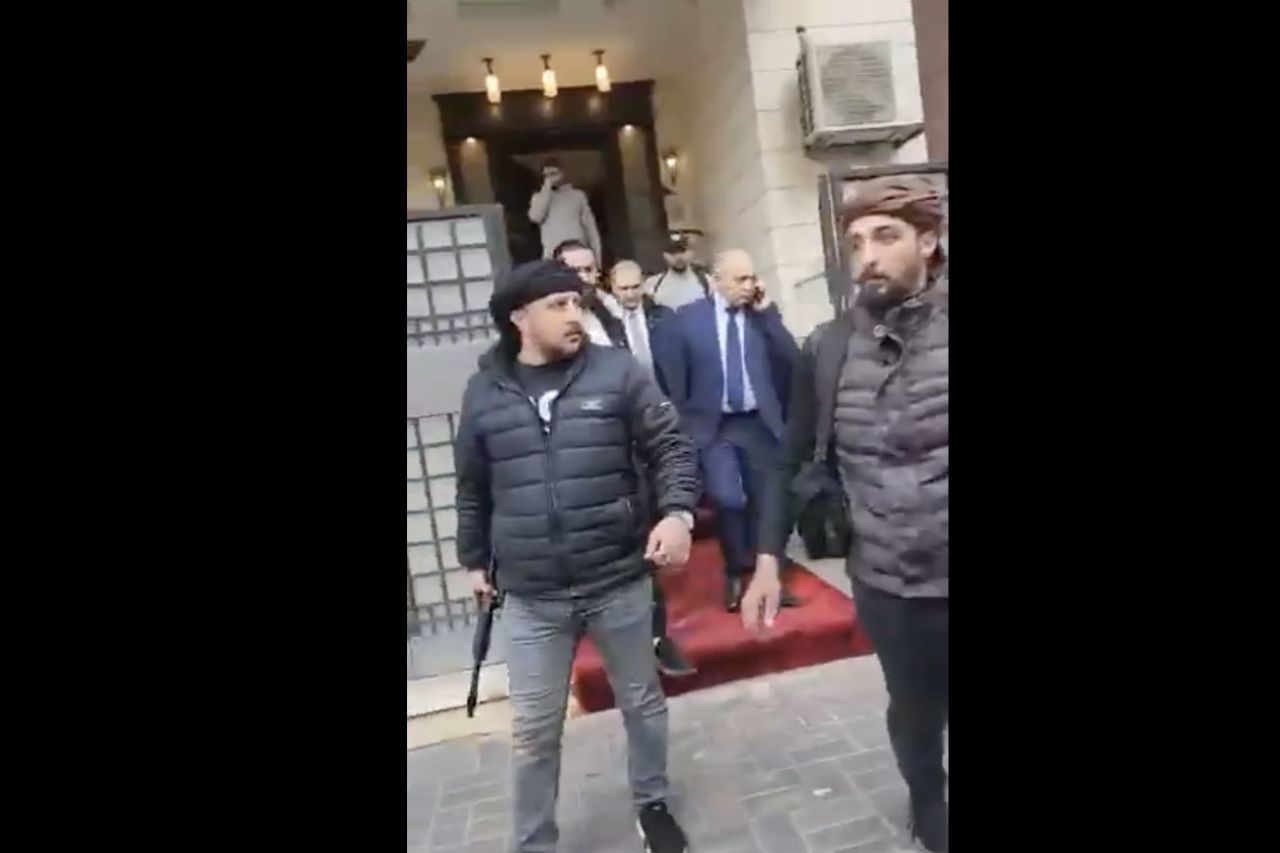
A video showed Syrian Prime Minister Mohammad Ghazi Al-Jalali being escorted by rebels in Damascus on Sunday, purportedly to a hotel to hand over government authority.
The video showed Jalali surrounded by armed men walking down some steps and entering a black SUV with another man.
“The former prime minister is with the 5th Corps from the people of Hauran heading to the Four Seasons Hotel for a meeting and to hand over the country’s institutions to the heroes of the Free Army,” a man is heard saying in the video.
The prime minister said earlier he wants to “ensure” the operation of public institutions, state facilities, and the preservation of “safety and security for all citizens.”
It’s morning in Damascus. Here’s what you should know
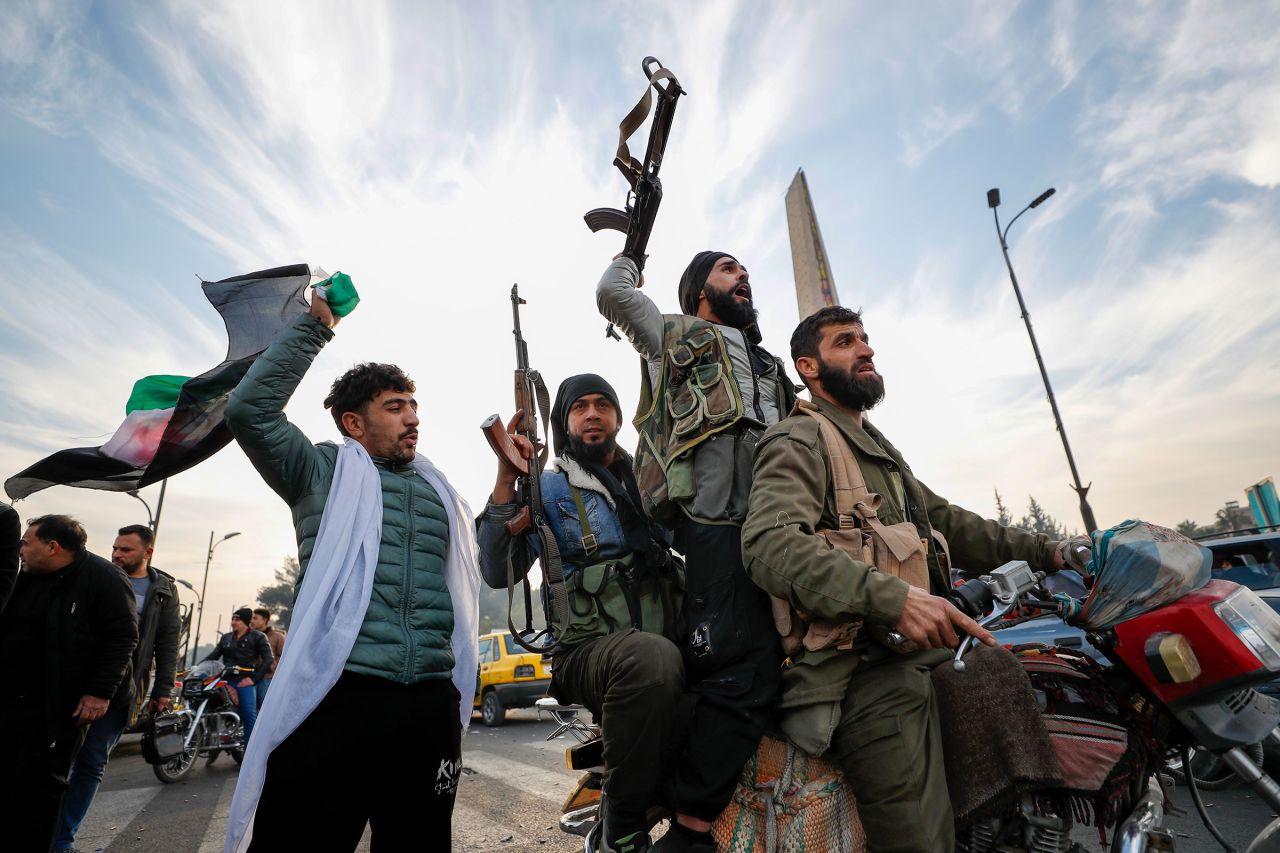
Syrian rebels have declared the capital Damascus “liberated” after entering the city to scant resistance from regime forces, while claiming President Bashar al-Assad has fled the capital, losing his decades-long grip on power.
An active search is underway for Assad, according to a source familiar with the rebels’ operations. The Syrian leader has not been seen or heard from publicly since rebels entered the capital early on Sunday morning.
The removal of Assad – who has not been heard from since the rebels’ claim – would bring an end to more than 50 years of his family’s autocratic rule of the nation of about 23 million, which has been buffeted and fractured by more than a decade of civil war.
Meanwhile, Syrian Prime Minister Mohammad Ghazi al-Jalali said the government stood ready “to cooperate with any leadership the people choose.”
Here’s what else you should know:
- Taking control: Rebel operatives are taking up key positions in the capital after the rebel alliance swept across the country in a lightning offensive, a source familiar with the advance told CNN. “Militarily, Damascus has fallen,” the source said. Rebel fighters could be seen on the grounds of the Syrian presidential palace on Sunday. The rebels also said they’ve taken control of the notorious Saydnaya Military Prison north of Damascus. “Damascus has been liberated and the tyrant Bashar al-Assad has been overthrown, and oppressed prisoners in regime prisons have been released,” a spokesperson said, reading from a statement surrounded by roughly a dozen other rebels, on state television on Sunday.
- Searching for Assad: An active search is underway for Bashar al-Assad with rebels questioning Syrian military officers and intelligence officials who might have knowledge about his movements, according to a source familiar with the rebels’ operations.
- PM calls for cooperation: Prime Minister Mohammad Ghazi al-Jalali said the government stands ready “to cooperate with any leadership the people choose,” in a recorded message on Sunday morning.
- Caught off guard: The stunning speed of the rebel advance has caught much of the world off guard and brought about a stunning reordering of power in a Middle Eastern nation that has long been at the crossroads of a regional power struggle. Both Iran and Russia were supporters of the Assad regime and helped keep it in power during a grueling civil war that sparked one of the world’s largest recent refugee crises.
- Jubilation on the streets: Footage shared on social media and verified by CNN showed people celebrating in Syria’s second-largest city Aleppo, as word spread of Assad fleeing Damascus. Aleppo fell to the rebels just over a week ago, as they launched their offensive, which has since swept several major cities.
- US reaction: US President Joe Biden is “closely monitoring” developments in Syria and staying in “constant touch with regional partners,” National Security Council spokesperson Sean Savett wrote on X.
- Iran’s collapse: One US official told CNN that events in Syria mark the collapse of “Iran’s artifice” across the Middle East. The potential toppling of the Iran-backed Assad would follow the decimation of key Tehran proxies Hezbollah and Hamas in conflicts with Israel over the past 14 months.
In photos: Scenes from across Syria as rebels claim control of Damascus
People have taken to the streets across Syria, following the news that rebel forces have entered the capital Damascus.
The seizing of Damascus comes after a lightning offensive by the rebels, who say they’ve also “fully liberated” the city of Homs, just over a week after they captured Aleppo.








Israeli military deploys forces to Golan Heights buffer zone with Syria
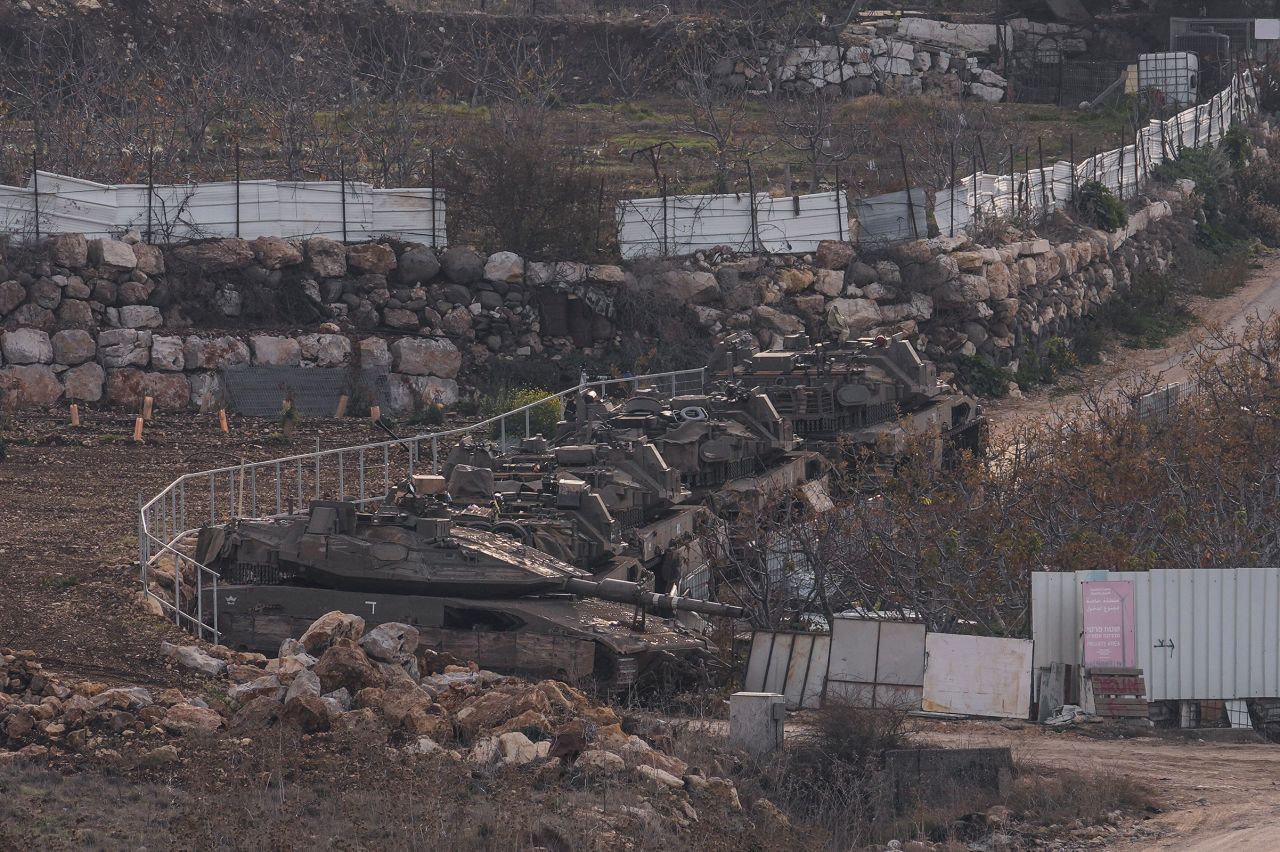
Israel’s military have deployed forces into the buffer zone between Israel and Syria in the occupied Golan Heights, according to a statement on Sunday.
“Following the recent events in Syria, including the entry of armed personnel into the buffer zone, the IDF has deployed forces in the buffer zone and in several other places necessary for its defense, to ensure the safety of the communities of the Golan Heights and the citizens of Israel,” the Israel Defense Forces (IDF) said.
The military said it would continue to operate as long as necessary in the area “to preserve the buffer zone and defend Israel and its civilians.”
“We emphasize that the IDF is not interfering with the internal events in Syria,” the statement added.
Some context: The Golan Heights is a strategic plateau that Israeli seized from Syria during the Six-Day War in 1967, before formally annexing it in 1981. The hilly landscape, which spans some 500 square miles, also shares a border with Jordan and Lebanon.
Syria’s capital Damascus is visible from atop the rocky Golan. The Israeli-occupied part of the region is separated from Syria by a buffer zone supported by the United Nations.
The Golan Heights is considered to be occupied territory under international law and UN Security Council resolutions, and Syria continues to demand it be returned.
Who are Syria’s rebel groups?
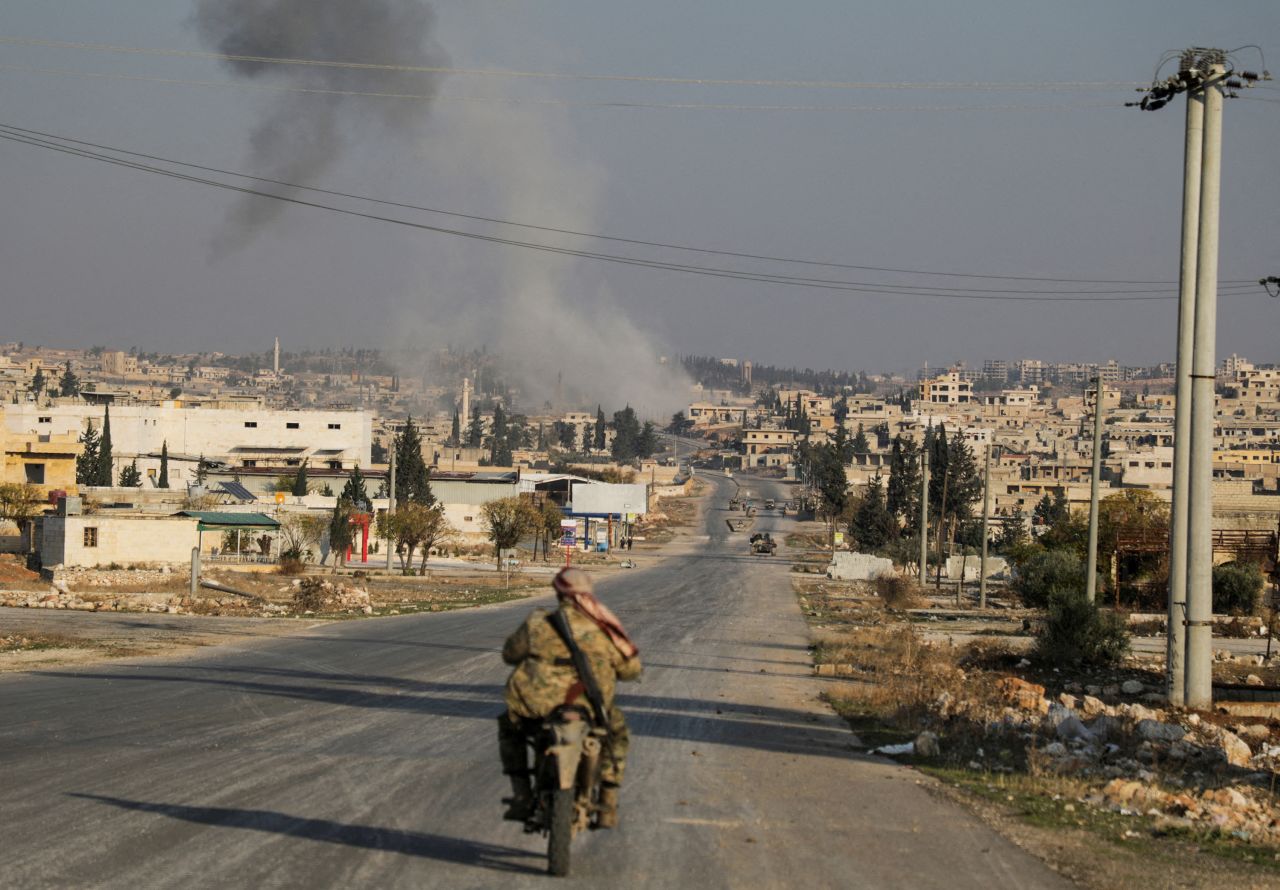
Syria’s rebel coalition consists of Islamist and moderate factions who, despite their differences, are united in fighting the Assad regime, ISIS and Iran-backed militias.
Here are some of the groups forming the coalition:
Hayat Tahrir Al Sham (HTS): The most prominent and formidable of the groups is HTS, also known as the Organization for the Liberation of the Levant. HTS was founded by Abu Mohammad al-Jolani, a military commander who gained experience as a young fighter for al Qaeda against the United States in Iraq.
He created Jabhat al-Nusra, al Qaeda’s Syrian affiliate, and operated the group until a public split with in 2016 over ideological differences and opposition to ISIS. Jolani formed HTS in 2017.
Despite Jolani’s effort to distance HTS from al Qaeda and ISIS, the US and other Western countries designated it a terrorist organization in 2018 and placed a $10 million bounty on him.
The Syrian National Army (SNA): The “Syrian National Army” incorporates dozens of factions with various ideologies that receive funding and arms from Turkey.
That coalition includes the National Liberation Front, comprising factions like Ahrar al-Sham whose stated aims are to “overthrow the (Assad) regime” and “establish an Islamic state governed by Sharia law.”
Complicating matters is that some members of the rebel coalition are also fighting Kurdish forces.
The Turkish-backed Free Syrian Army said last week it had seized control of the city of Tal Rifaat and other towns and villages in the northern part of the Aleppo governorate.
Those territories were previously held not by Assad’s government but by another faction involved in the multi-front civil war: the Syrian Democratic Forces.
The SDF are largely made up of Kurdish fighters from a group known as the Peoples’ Protection Units (YPG), which is considered a terrorist organization by Turkey.
In Syria’s south, fighters from the country’s Druze religious minority have also joined the fight, a local activist group told CNN.
Druze are fighting in the southern city of as-Suwayda, which neighbors the Daraa province, where opposition forces claim to have taken control of Daraa city.
Rebels declare Damascus “liberated” and political prisoners released in televised statement
Rebel fighters declared the Syrian capital of Damascus “liberated” in a televised statement carried on state television on Sunday.
“Damascus has been liberated and the tyrant Bashar al-Assad has been overthrown, and oppressed prisoners in regime prisons have been released,” a spokesperson said reading from a statement surrounded by roughly a dozen other rebels.
“We ask people and fighters to protect all property in Free Syria…long live Syria free for all Syrians of all sects,” he added.
The rebels moved to capture the state media offices early on Sunday morning after entering Damascus.
Prisons: Syrian rebels previously claimed they had taken control of the notorious Saydnaya Military Prison north of Damascus, according to a statement on Sunday. It is not clear how many other prisons in the capital.
Amnesty International dubbed Saydnaya “the human slaughterhouse” in a 2017 report after extensively documenting mass hangings there.
A report by the Office of the United Nations High Commissioner for Human Rights in July 2023 highlighted the “continuing widespread and systematic patterns of torture and cruel, inhuman or degrading treatment, including enforced disappearances” inside Syrian detention facilities including Saydnaya.
Rebel fighters seen on the grounds of the Syrian presidential palace
Rebel fighters could be seen on the grounds of the Syrian presidential palace on Sunday.
Footage verified by CNN showed fighters by a gate house located on the southern edge of the palace grounds.
The men can be seeing firing guns in the air in celebration on the otherwise deserted entrance area.
Active search underway for Assad, source tells CNN
An active search is underway for Bashar al-Assad with rebels questioning Syrian military officers and intelligence officials who might have knowledge about his movements, according to a source familiar with the rebels’ operations.
Rebel forces declared Damascus “free” on Sunday, claiming Assad had fled the capital.
The Syrian leader has not been seen or heard from publicly since rebels entered the capital early on Sunday morning.
Rebellion in Syria marks collapse of “Iran’s artifice” across the Middle East: US official
One US official told CNN that events in Syria mark the collapse of “Iran’s artifice” across the Middle East.
The potential toppling of the Iran-backed Assad would follow the decimation of key Tehran proxies Hezbollah and Hamas in conflicts with Israel over the past 14 months.
US President Joe Biden is “closely monitoring” developments in Syria, according to a statement.
“President Biden and his team are closely monitoring the extraordinary events in Syria and staying in constant touch with regional partners,” National Security Council spokesperson Sean Savett wrote on X.
“We are ready to cooperate with any leadership the people choose,” Syrian prime minister says
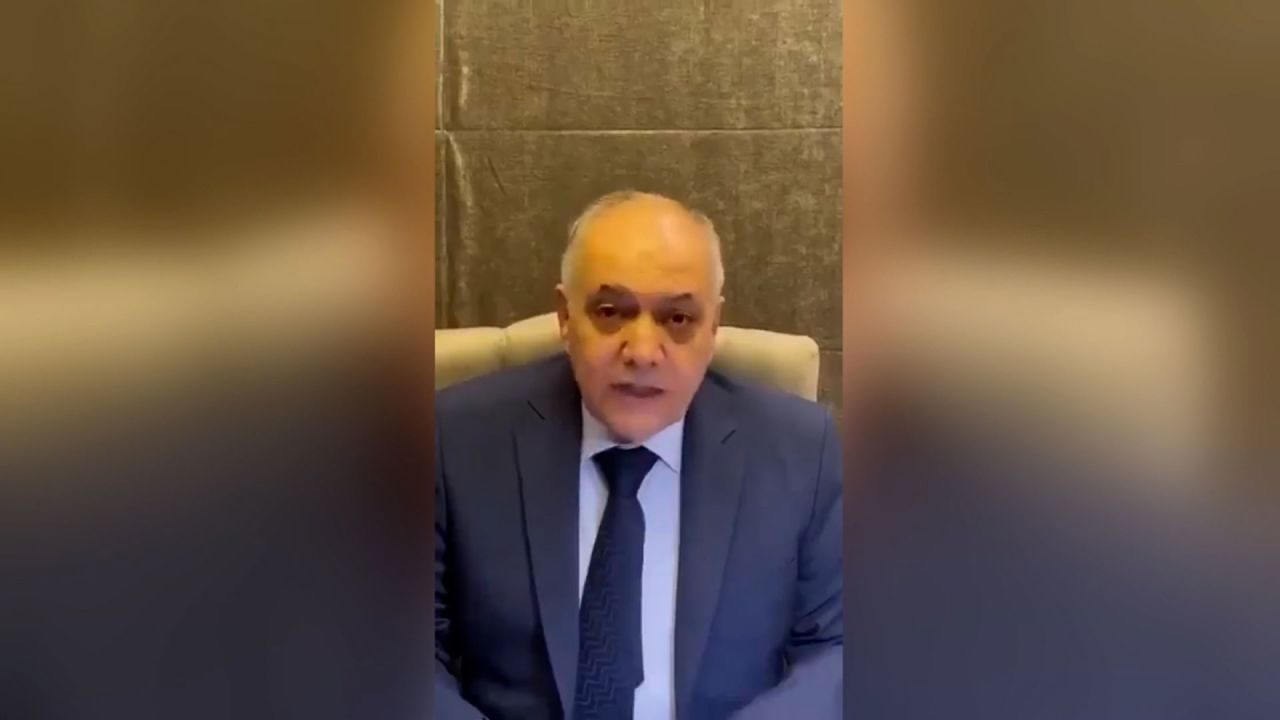
Syrian Prime Minister Mohammad Ghazi al-Jalali said the government stands ready “to cooperate with any leadership the people choose,” in a recorded message on Sunday morning.
“We are ready to cooperate with any leadership the people choose, offering all possible support to ensure a smooth and systematic transition of government functions, preserving state facilities,” he said.
Ghazi al-Jalali called on Syrians to protect public facilities, saying they belonged to all citizens.
“We extend our hands to every Syrian citizen who is concerned about safeguarding this nation’s assets… I urge all citizens not to harm any public property because, ultimately, it belongs to them.”
The militant leader of Hayat Tahrir Al-Sham (HTS), the main group driving the country’s armed opposition, released a statement calling on rebel forces to leave state institutions unharmed.
“To all military forces in the city of Damascus, it is strictly forbidden to approach public institutions, which will remain under the supervision of the former Prime Minister until they are officially handed over, and it is also forbidden to fire bullets into the air,” Ahmed al-Sharaa, also known as Abu Mohammad al-Jolani, wrote on telegram.
On Thursday, Jolani projected a different vision for the war-torn country in an interview with CNN. In a sign of his attempted rebranding, he also publicly used his real name for the first time – Ahmed al-Sharaa – instead of Abu Mohammad al-Jolani, the nom de guerre by which he is widely known.
Syrian rebels declare Damascus “free,” claim Bashar al-Assad has fled the capital
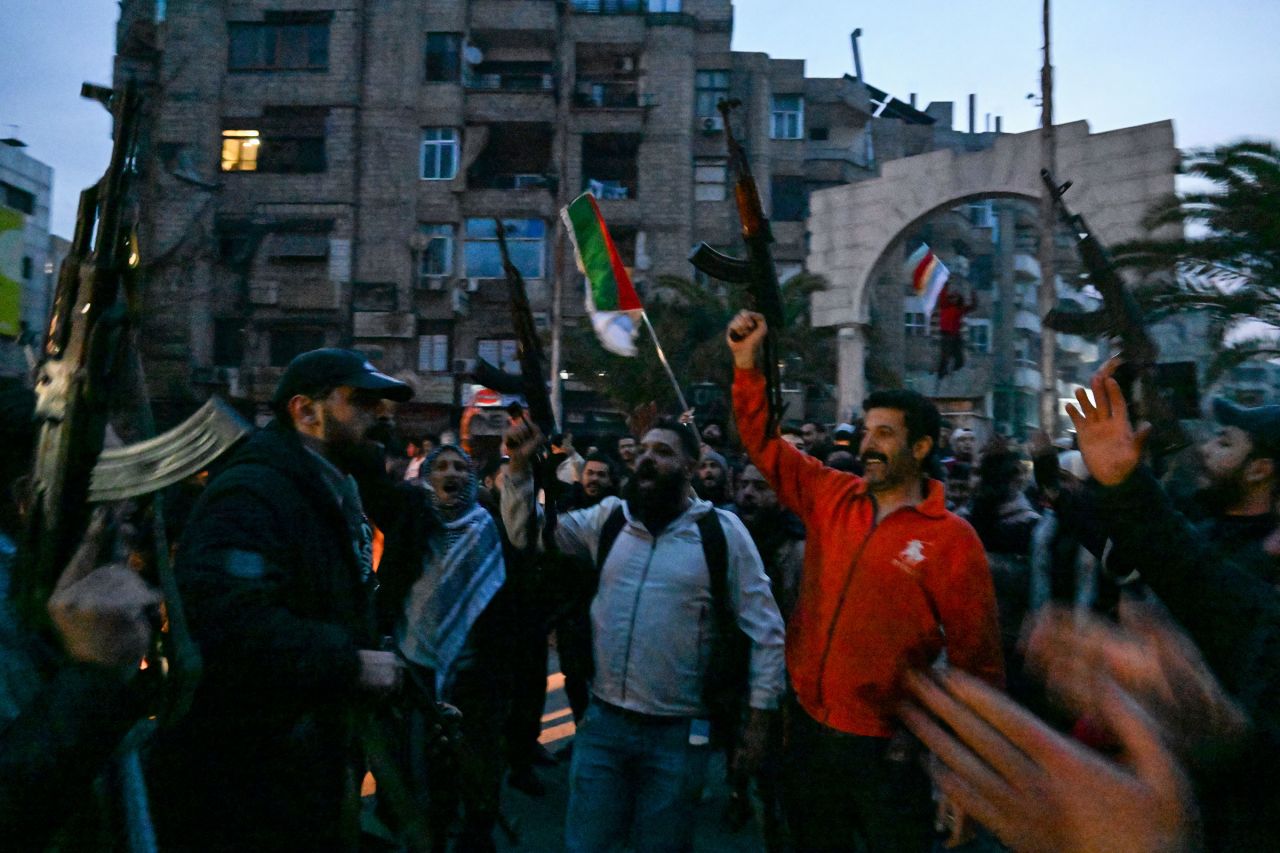
Rebel forces in Syria have declared Damascus “free,” claiming Bashar al-Assad has fled the capital, according to a statement on Sunday.
“To the displaced all over the world, a free Syria awaits you,” the statement added.
The rebels earlier claimed to have entered the capital and taken control of the notorious Saydnaya Military Prison north of Damascus.
Rebels claim to have control of notorious prison near Damascus
Syrian rebels fighting against the government of Bashar al-Assad claim they have taken control of the notorious Saydnaya Military Prison north of Damascus, according to a statement on Sunday.
Amnesty International dubbed Saydnaya “the human slaughterhouse” in a 2017 report after extensively documenting mass hangings there.
A report by the Office of the United Nations High Commissioner for Human Rights in July 2023 highlighted the “continuing widespread and systematic patterns of torture and cruel, inhuman or degrading treatment, including enforced disappearances” inside Syrian detention facilities including Saydnaya.
Syria rebels move to capture state media offices in Damascus: statement
Syrian rebels are moving to capture state media offices in Damascus, according to a statement on Sunday morning.
Earlier in the evening the rebel alliance posted a message to its official Telegram account claiming its “forces began entering the capital.”
A resident of the Barzeh neighborhood of Damascus told CNN that rebels were in the area and clashes were taking place.
Scenes of chaos at Damascus airport as people attempt to flee rebel advance
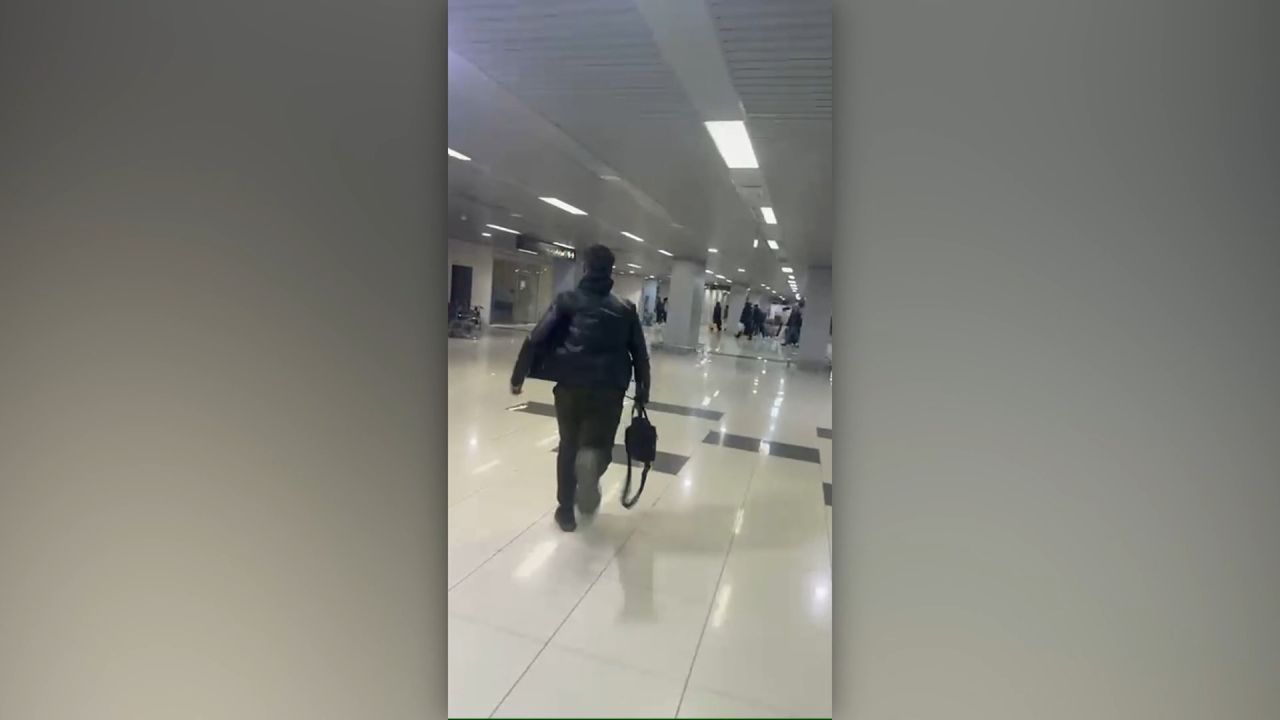
Scenes of chaos unfolded inside Damascus airport early Sunday morning local time, as Syrian rebel forces continued their lightning advance into the capital city.
Footage verified by CNN showed dozens of people quickly passing through security checkpoints and rushing to departure gates in an attempt to flee the country.
The airport appeared to be largely unstaffed and flight monitoring websites showed no imminent departures scheduled.
Rebels appear to have entered Damascus, resident says, as Assad regime’s defenses collapse
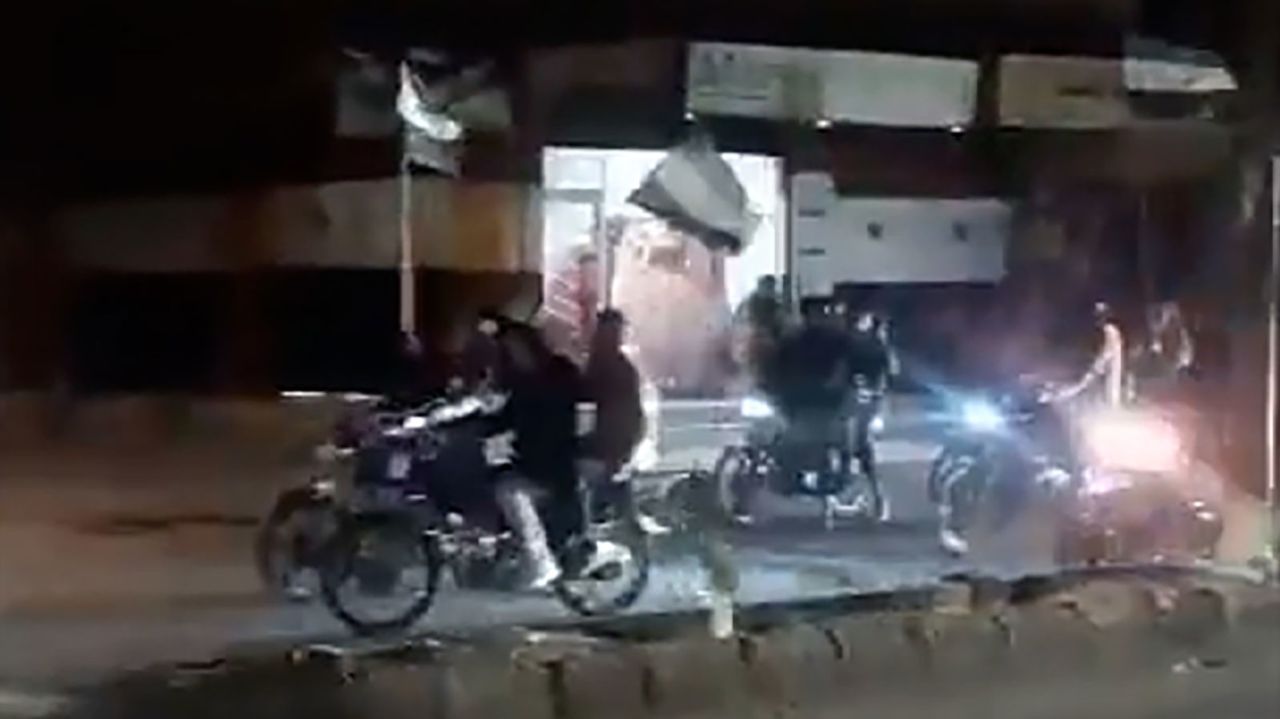
Rebel forces appear to have entered the Syrian capital of Damascus, one resident told CNN, as the Assad regime’s defenses showed signs of collapsing.
“The rebels are in Barzeh,” a neighborhood inside Damascus city, the resident told CNN, adding that clashes were currently taking place.
“I saw rebel fighters moving through the inner alleys of Barzeh toward Police Club Street, and I can hear very loud sounds of clashes. The electricity is cut off, and the internet is very weak, people are staying at their houses.”
Reconnaissance units had entered Damascus overnight searching for President Bashar al-Assad but were unable to find him, the source added.
Special rebel operatives have entered Damascus and are taking up key positions in “strategic places,” the source said.
The rebels say they are in touch with senior Assad regime elements who are considering defecting.
Through the day, anti-regime forces have been moving from the north, south and east toward Damascus, reaching suburbs less than 5 miles — and in one case, barely 1 mile — from the center of the Syrian capital.
The Assad regime could fall in days, US increasingly believes
Officials in US President Joe Biden’s administration, watching the remarkable speed of the Syrian rebel advance, increasingly see the possibility of Bashar al-Assad’s regime falling within days, five US officials told CNN.
If the American analysis proves true, it would represent a spectacularly fast fall from power for the Syrian dictator after a war that began in 2011, one that had been relatively stagnant until just last week.
Officials cautioned that there isn’t a formal assessment that has emerged on Assad’s fate and that views vary, saying his demise isn’t a forgone conclusion.
“The emerging consensus is that is an increasingly plausible scenario,” one senior US official said.
“Only thing that would delay a rebel conquest would be a well-organized coup and reorganization, but Assad’s folks have done a good job of stifling any potential competitors,” the official added.
The Biden administration appeared caught off guard by the speed of the rebel advance that was launched last week. Regime troops have collapsed and melted away, leaving a fragile shell of an army to defend the president and Damascus.
For context: The US has misjudged the staying power of regimes before, most recently in Afghanistan — where the US intelligence community judged that the Afghan government would be more resilient than it ultimately was — and in Ukraine, which the US wrongly believed would fall to Russia within days of Russia’s invasion. As a result, in 2022, the US intelligence launched a review of how it assesses the “will to fight” of foreign militaries, CNN has previously reported.
Assad is nowhere to be found in Damascus, source says
Syrian President Bashar al-Assad is nowhere to be found in Damascus, a source tells CNN.
The official line of the Syrian president’s office is that Assad hasn’t fled the capital. But a source with knowledge of the situation tells CNN that Assad isn’t at any of the locations in the city where you’d expect to find him.
Assad’s Presidential Guard are no longer deployed at his usual place of residence, as they would be if he was there, the source said, fueling speculation he may have escaped Damascus.
Traditionally, this guard detail would provide Assad’s inner cordon of security, and some of them would be expected to travel with the president when he is on the move.
According to the source, rebel forces have no solid intelligence on Assad’s location and are continuing their efforts to find him.
